Keely Laycock
MULTI-COMPONENT SAMPLE – STAGE 7 Cambridge Lower Secondary Global Perspectives
Second edition Digital Access
Executive Preview

Dear Teacher,
Welcome to the new edition of our Cambridge Lower Secondary Global Perspectives series, providing full support for the curriculum framework from 2022. This series has been designed to exibly meet all of your teaching needs, with a scaffolded skills approach. This preview will help you understand how the learner’s skills book and the teacher’s resource work together to best meet the needs of your classroom, timetable and learners.
This Executive Preview contains sample content from the series, including:
• A guide explaining how to use the series
• A guide explaining how to use each resource
In developing this new edition, we carried out global research with Cambridge Lower Secondary Global Perspectives teachers – through interviews and work on the Cambridge Panel, our online teacher research community. Teachers just like you have helped our experienced authors shape these new resources, ensuring that they meet the real teaching needs of the Cambridge Lower Secondary Global Perspectives classroom.
The learner’s skills book has been speci cally written to support English as a second language learners with key subject words, glossary de nitions in context and accessible language throughout. We have also provided new features that help with active learning, assessment for learning and student re ection. For example, new skills openers to engage your learners and highlight links to the Challenges, as well as ‘Showcasing your skills’ at the end of each skill section.
Core to the series is the teacher’s resource with digital access. It will help you support your learners and con dently teach to the curriculum framework, whether you are new to teaching the subject or more experienced. Each chapter includes lesson ideas, activities, common misconceptions to watch out for, worksheets and downloadable projects. These resources offer additional opportunities for your learners to practise key skills. You’ll also nd answers to the learner’s skills book, extra ideas to extend learning and more.
Please take ve minutes to nd out how our resources will support you and your learners. To view the full series, you can visit our website or speak to your local consultant. You can nd their contact details here:
cambridge.org/gb/education/ nd-your-sales-consultant
Best wishes,
Julia Fusi
Commissioning Editor for Global Perspectives
Cambridge University Press & Assessment

How to use this series
This suite of resources supports learners and teachers following the Cambridge Lower Secondary Global Perspectives curriculum framework (1129) from 2022. The components in the series are designed to work together and help learners develop the necessary skills for this subject. With clear language and style, they are designed for international learners.


The Learner’s Skills Book is designed for learners to use in class with guidance from the teacher. It offers complete coverage of Cambridge Lower Secondary Global Perspectives. The Learner’s Skills Book supports students in developing the Global Perspectives skills of analysis, collaboration, communication, evaluation, reflection and research through an active learning approach. Each section also provides opportunities to practise the Global Perspectives skills through engaging topics, discussion activities and independent reflection.
A digital version of the Learner’s Skills book is included with the print version and available separately.
The Teacher’s Resource provides everything teachers need to confidently deliver the course. It is packed full of useful teaching notes and lesson plans, with suggestions for differentiation to support and challenge students, and ideas for formative assessment. A digital version of the Teacher’s Resource is included with the print version. The digital resource contains worked examples, templates for activities and three projects which give learners further opportunities to develop the six Global Perspectives skills through interesting topics.


3 How to use this series
LEARNER’S SKILLS BOOK 7 Cambridge Lower Secondary Global Perspectives Keely Laycock Global Perspectives ™ LEARNER’S SKILLS BOOK 7 Cambridge Lower Secondary Second edition Digital Access Cambridge experienced textbooks teachers Press Developing 21st century skills and understanding perspectives from around the globe has never been more important in the modern world. Join us as we take you on a journey through skills development with our stage 7 learner’s skills book. Adaptable to any topic, including sustainability and the digital world, our write-in books make skills measurable and give you the foundations to become a global citizen. This learner’s skills book has been written to support the Cambridge Lower Secondary Global Perspectives Curriculum Framework (1129). Cambridge Global Perspectives™ TEACHER’S RESOURCE 7 Cambridge Lower Secondary Global Perspectives Keely Laycock Six sections that develop the key skills of evaluation, reflection, analysis, research, collaboration and communication A large collection of collaborative and independent activities to help you track your skills progress Chance to assess others’ work to help improve your collaboration and reflection skills Specific questions to encourage your thinking – such as, ‘what do you think the term “research” means?’ A clear language style and opportunities to practise your English speaking skills, making this book ideal for second language learners Register to access free supporting resources through Cambridge GO –the home for all of your Cambridge digital content. Visit cambridge.org/go Global Perspectives TEACHER’S RESOURCE 7 Cambridge Lower Secondary Second edition Digital Access This resource is endorsed by Cambridge Assessment International Education ✓ Supports the full Cambridge IGCSE, IGCSE (9-1) and O Level French syllabuses (0520/7156/3015) for examination from 2021 ✓ Has passed Cambridge International’s rigorous quality-assurance process ✓ Developed by subject experts ✓ For Cambridge schools worldwide Completely Cambridge Cambridge University Press works with Cambridge Assessment International Education and experienced authors to produce high-quality endorsed textbooks and digital resources that support Cambridge teachers and encourage Cambridge learners worldwide. To find out more about Cambridge University Press visit cambridge.org/cambridge-international
Cambridge Lower Secondary Global Perspectives
LEARNER’S SKILLS BOOK 7
Keely Laycock
Secondedition Digital Access SAMPLE Original material © Cambridge University Press & Assessment 2023. This material is not final and is subject to further changes prior to publication.
Introduction vii How to use this book x Section 1 Research 1 Let’s start thinking about research! 2 Starting with research skills: Lesson 1 4 Starting with research skills: Lesson 2 9 Starting with research skills: Lesson 3 15 Developing research skills: Lesson 4 22 Developing research skills: Lesson 5 26 Developing research skills: Lesson 6 31 Getting better at research skills: Lesson 7 38 Getting better at research skills: Lesson 8 42 Getting better at research skills: Lesson 9 46 Showcasing your skills 52 Section 2 Analysis 53 Let’s start thinking about analysis! 54 Starting with analysis skills: Lesson 1 56 Starting with analysis skills: Lesson 2 61 Starting with analysis skills: Lesson 3 65 Developing analysis skills: Lesson 4 71 Developing analysis skills: Lesson 5 75 Developing analysis skills: Lesson 6 79 Getting better at analysis skills: Lesson 7 84 Getting better at analysis skills: Lesson 8 89 Getting better at analysis skills: Lesson 9 94 Showcasing your skills 100 Section 3 Evaluation 101 Let’s start thinking about evaluation! 102 Starting with evaluation skills: Lesson 1 104 Starting with evaluation skills: Lesson 2 108 Starting with evaluation skills: Lesson 3 112 v SAMPLE Original material © Cambridge University Press & Assessment 2023. This material is not final and is subject to further changes prior to publication.
Contents
vi Contents Developing evaluation skills: Lesson 6 126 Getting better at evaluation skills: Lesson 7 133 Showcasing your skills 138 Section 4 Reflection 139 Let’s start thinking about reflection! 140 Starting with reflection skills: Lesson 1 142 Starting with reflection skills: Lesson 2 146 Starting with reflection skills: Lesson 3 150 Developing reflection skills: Lesson 4 156 Developing reflection skills: Lesson 5 160 Developing reflection skills: Lesson 6 164 Getting better at reflection skills: Lesson 7 170 Getting better at reflection skills: Lesson 8 174 Getting better at reflection skills: Lesson 9 178 Showcasing your skills 184 Section 5 Collaboration 185 Let’s start thinking about collaboration! 186 Starting with collaboration skills: Lesson 1 188 Starting with collaboration skills: Lesson 2 192 Starting with collaboration skills: Lesson 3 197 Developing collaboration skills: Lesson 4 204 Developing collaboration skills: Lesson 5 208 Developing collaboration skills: Lesson 6 212 Getting better at collaboration skills: Lesson 7 218 Showcasing your skills 224 Section 6 Communication 225 Let’s start thinking about communication! 226 Starting with communication skills: Lesson 1 228 Starting with communication skills: Lesson 2 233 Starting with communication skills: Lesson 3 237 Developing communication skills: Lesson 4 243 Developing communication skills: Lesson 5 247 Developing communication skills: Lesson 6 251 Getting better at communication skills: Lesson 7 257 Showcasing your skills 263 Glossary 264 SAMPLE Original material © Cambridge University Press & Assessment 2023. This material is not final and is subject to further changes prior to publication.
1 Research
How to use this book
How to use this book
Starting with research skills: Lesson 1
This book contains lots of different features that will help your learning. These are explained below.
This list sets out what you will learn in each lesson. You can use these learning goals to identify the important topics for the lesson.
My learning goals are to start to:
• understand what the term ‘research’ means
• understand how to write some basic questions about an issue
• recognise a good research question
• identify some of the features of a good research question
How will I know if I reach my goals?
4
How will I know if I reach my goals?
This will help you to know when you have met your learning goals.
Main idea
Subject-specific words
These are questions or tasks to help check your level of understanding before beginning a lesson.
Peer feedback
c Share your information with a partner� Do they have the same ideas as you? Add to your ideas in a different colour�
New and important words are orange in the text. You can find out what they mean in the glossary at the back of the book.
2 Read each paragraph of the text again� Discuss what the text is about with your partner�
a Write the main idea from each paragraph into the table below�
Each tip provides useful information and key points to consider.
b Next to each paragraph, write notes about the key information� Text title
Starting with research skills: Lesson 1
As you work through this lesson, tick the ‘Achieved’ box to show you have achieved your learning goals. If you haven’t quite achieved your learning goals, tick ‘Not there yet’. Start to think about how you are going to showcase your learning goals. Add an example once you have achieved each learning goal.
Lesson 1 Not there yetAchievedExample
As you work through this lesson, tick the ‘Achieved’ box to show you have achieved your learning goals. If you haven’t quite achieved your learning goals, tick ‘Not there yet’. Start to think about how you are going to show your learning goals in your challenge. Add an example from your challenge once you have achieved each learning goal.
I think I know what the term ‘research’ means.
Lesson 1 Not there yetAchievedExample
I can write some basic questions about an issue.
I think I know what the term ‘research’ means.
I can write some basic questions about a topic.
I can recognise a good research question.
I can recognise a good research question.
I can identify some features of a good research question.
I can identify some features of a good research question.
Prior learning
Prior learning
What do you think the term ‘research’ means?
Subject-specific words are words that are related to the main idea.
Main activity
What do you think the term ‘research’ means? Research is
Research is Starter activity
The issue I am focusing on today is …
Starter activity
Starting with research skills:
1 Which do you think is the best research question? Put the questions
A–
D in order (the best at number 1 and the worst at number 4).
Tip Look for key words that tell the reader about the topic. Tip Bullet point notes should be a few words only, not full sentences.
1 Which do you think is the best research question? Put the questions
A–D in order (the best at number 1 and the worst at number 4)�
A When do children start school?
A When do children start school?
B Should we remove all sugar from our diet?
B Should we remove all sugar from our diet?
C What is poverty?
C What is poverty?
D Why are social networking sites bad? Starting
1 Produce a mind map of as many questions about the issue as you can think of.
D Why are social networking sites bad?
3
2 a Work with a partner to discuss your questions. Using what you have learned so far about a good research question, write down your three best research questions. Remember to check whether each of your questions:
x
..................................................................................... Main idea Notes about the
Paragraph 1:
• • Paragraph
key information
•
2: • • Tip
5 SAMPLE Original material © Cambridge University Press & Assessment 2023. This material is not final and is subject to further changes prior to publication.
with research skills: Lesson 1
This focuses on how you are learning, rather than what you are learning, and you can set yourself learning targets for the next lesson(s).
Class discussion
3 As a class, discuss all the best questions� Which do you as a class think is the best question and why?
Best question:
Reason:
2 Analysis
Independent reflection activity
These are opportunities at the end of each lesson to reflect on your progression through the learning goals, and relate this to your issue.
This allows you to consider your progress through the learning goals. The red-amber-green checklist encourages you to think about where you are on your learning journey, and to look back at past self-assessments to see clearly how you are progressing.
This provides an opportunity to reflect on your issue as you progress through each skill.
This shares the experiences of other learners with you. It also models ways in which you might reflect on your work.
What do you think has helped your learning in this lesson? Explain why, if you can.
Independent reflection activity
A Working on my own:
Do you think you might be better able to come up with courses of action to help resolve issues after this lesson?
B Working with a partner:
Independent reflection activity
C Whole class discussion:
Why?
Something that helped you learn today:
D Writing things down in my Learner's Skills Book:
Other skills you have used today
Other skills you have used today
Other skills you have used today
2 Analysis

74
70
Check your learning
Check your learning
Check your learning
Continued






If you haven’t already done so, complete the ‘How will I know if I reach my goals?’ table with ‘Not there yet’ or ‘Achieved’. Don’t forget to add examples.
Self-assessment 3
Analysis skills: I am starting to . . . RED AMBER GREEN
If you haven’t already done so, complete the ‘How will I know if I reach my goals?’ table with ‘Not there yet’ or ‘Achieved’. Don’t forget to add examples.

If you haven’t already done so, complete the ‘How will I know if I reach my goals?’ table with ‘Not there yet’ or ‘Achieved’. Don’t forget to add examples from your challenge. 6
Explain how evidence can support arguments.
I know what a graph is. I can identify some information from a graph.
Look back at Self-assessments 1 and 2. How much further progress do you feel you have made so far in developing your research skills?
Using the table below, shade in the box that matches your progress most closely. Eventually, you are aiming for green!
I am getting better at . . . RED
I am starting to understand how graphs can be used to present research findings. I can identify relevant information from a graph with help. I understand how to create a basic graph to present research findings. I can identify relevant information from a graph.
Identify and explain causes and consequences of different issues.
Writing research questions that link to an issue.
I am starting to understand what analysis is.
I know the features of a good research question and can write a research question with help.
Issue review
I didn’t know:
I now think:
2 Analysis
I understand what it means to analyse something and can identify a cause/ consequence with help.
I can write at least one good research question.
I understand what it means to analyse something and can identify a cause and a consequence.
I can write research questions and help others with their research questions.
Think about the issue you have been focusing on and complete the following statements. I was surprised to discover that:
Getting better at research skills: Lesson 9 49
Showcasing your skills
Your teacher will have access to downloadables that can be used with all the activities in this Learner’s Skills Book.

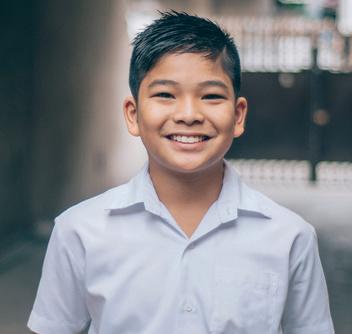
I’m so used to seeing certain brands that it had never occurred to me that they might have a negative impact on the environment – or on me! Exploring the topic ‘Globalisation’ helped me to notice the consequences of seeing these brands all the time.
It was so helpful when I realized that ‘causes’ means ‘reasons that things happen’. And that I only needed to explain each reason with one or two sentences.

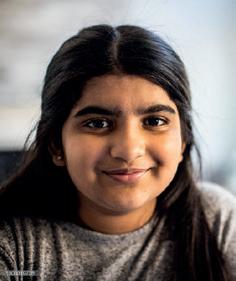
• What do I think about globalisation?
• How connected do I think we are?
• What do I feel about it?
Once I knew what my own perspective was, I could identify the perspectives of other people much more easily.
It’s important to understand that perspectives aren’t just pieces of information or research from a particular

How to use this book
AMBER GREEN
Original material © Cambridge University Press & Assessment 2023. This material is not final and is subject to further changes prior to publication.
SAMPLE
This section of your Learner’s Skills Book helps you to develop your research skills using interesting global issues.
Starting with . . .
As you start to develop your research skills, you will learn what the term ‘research’ means, and you will start to identify, discuss and write basic questions to help you focus on information you need to find out. You will practise discussing global issues and making notes on the information that you find so that you can tell someone about an issue in your own words. You will start to understand how to select different research methods for different purposes and give credit to the words of others.
Developing . . .
As you develop your research skills, you will begin to start constructing research questions. There are good and bad research questions and you will discuss the features of a good research question and begin to be able to tell the difference between good and bad research questions. You will also explore the difference between primary and secondary research methods and learn how to produce a questionnaire to get information about local issues from the people you know.
Getting better at . . .
As you get better at research, you will explore different sources of information on a variety of global issues and use the information you gain in a variety of ways, including creating presentations. You will increase your understanding of primary and secondary sources of information and become more confident in using a search engine. You will also understand why it is important to give credit to other peoples’ work and how their work can make yours even better.
Research Section 1
SAMPLE Original material © Cambridge University Press & Assessment 2023. This material is not final and is subject to further changes prior to publication.
Let’s start thinking about research!
In Section 1 Research, you might choose to focus on the Challenge ‘Is school the best place to learn?’ and the topic ‘Education for all’. If you take on this Challenge, you will try to find out as much as you can about different types of education and schooling. You will learn how to ask a range of questions that will help you to find out more about your system of education from your perspective, as well as finding out about learners in other places. And you can then decide if there are other ways to educate learners that might be as good as yours – or even better!
What might we ask?
Where do we learn?
What is learning?
What would our ideal school be like?
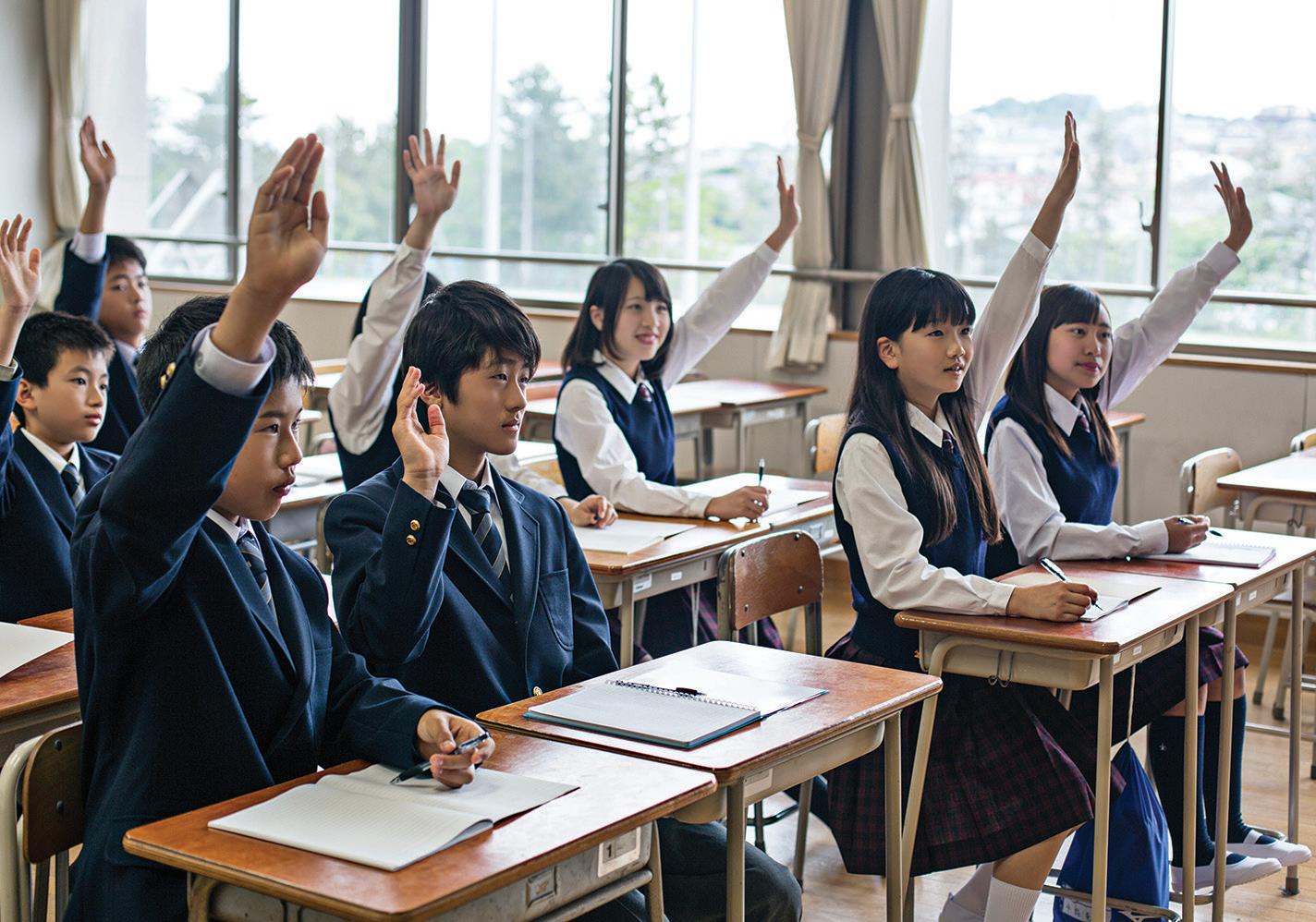
Do other young people in other places learn in different ways?
Should we have choices about when we learn?
Where we learn?
How we learn?
Who helps us learn?
When do we start to learn?
Do we learn better alone or with others?
1 Research
2 SAMPLE Original material © Cambridge University Press & Assessment 2023. This material is not final and is subject to further changes prior to publication.

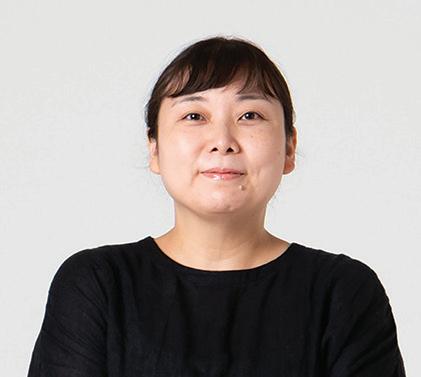
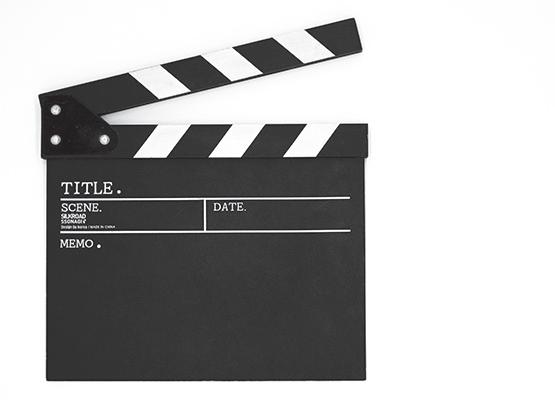
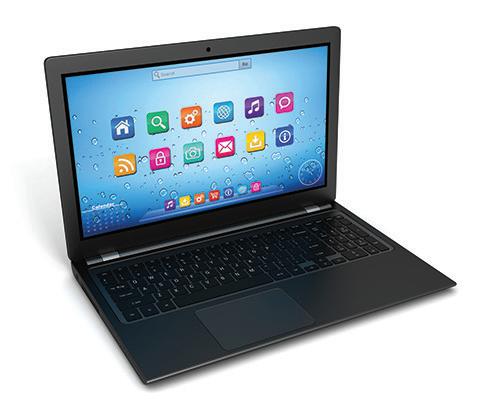
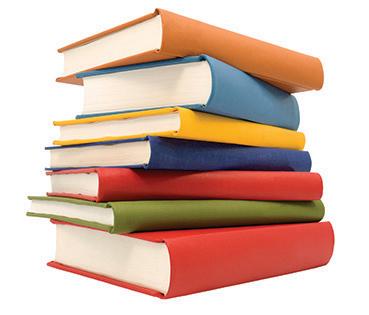
Alternatively, you might choose to focus on the topics ‘Education for all’ and ‘Health and wellbeing’, which are explored in this section of your Learner’s Skills Book.
Think about your answers to these questions:
• What might we ask?
• Who could we ask?
• Where might we look?
What is 'research'?
Research: a way of collecting information
Research is about learning how to:
• ask the right questions
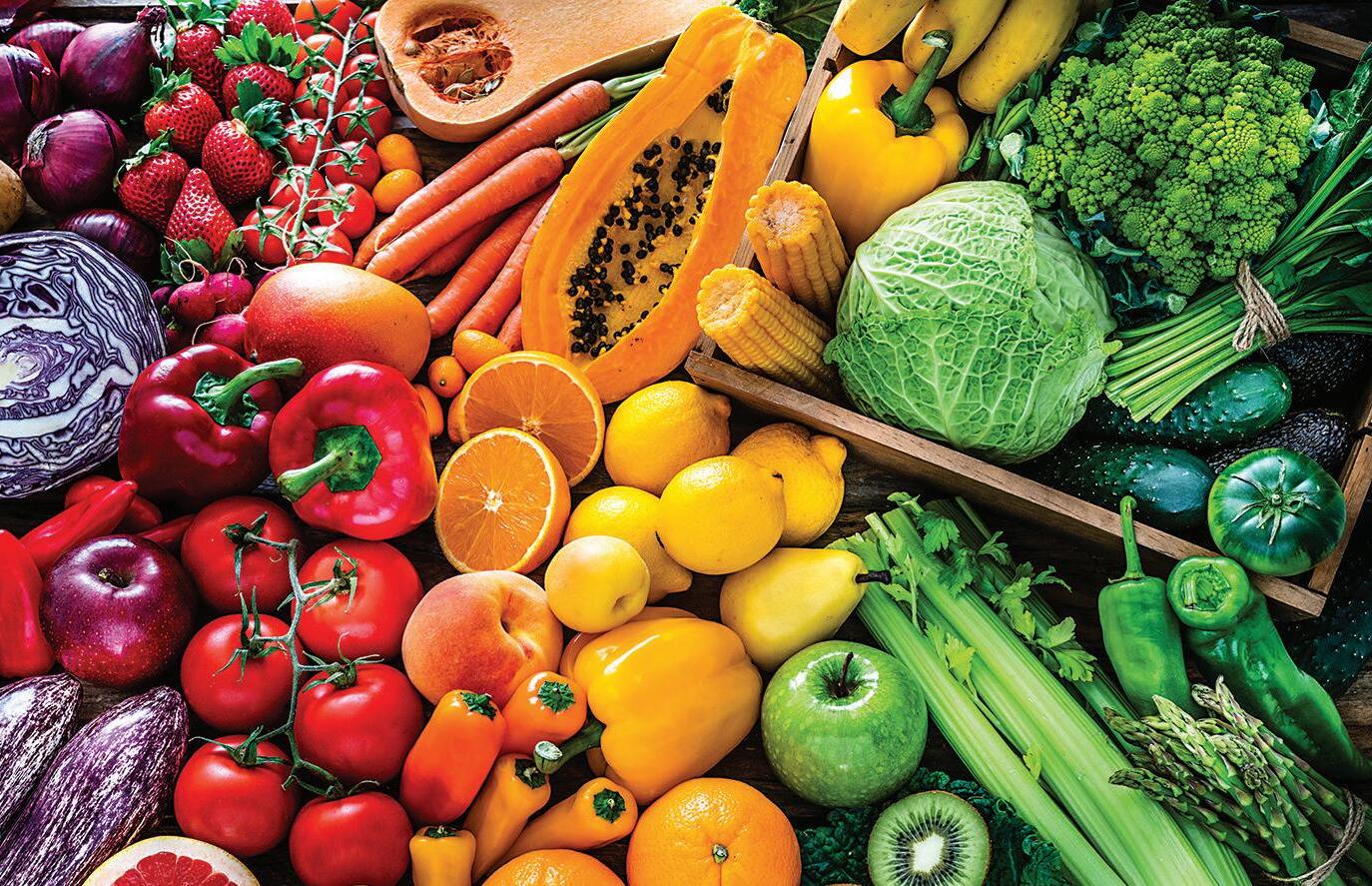

• find the best pieces of information from the most interesting places to answer those questions
• record your sources properly.
Remember!
You can use any of the Challenges or topics as the starting point to develop your research skills. Your teacher may direct you to focus on a specific Challenge or topic, or you may be able to choose for yourself.
1 Research
People Newspapers Books Films Internet Who could we ask? Where might we look?
3
Original material © Cambridge University Press & Assessment 2023. This material is not final and is subject to further changes prior to publication.
SAMPLE
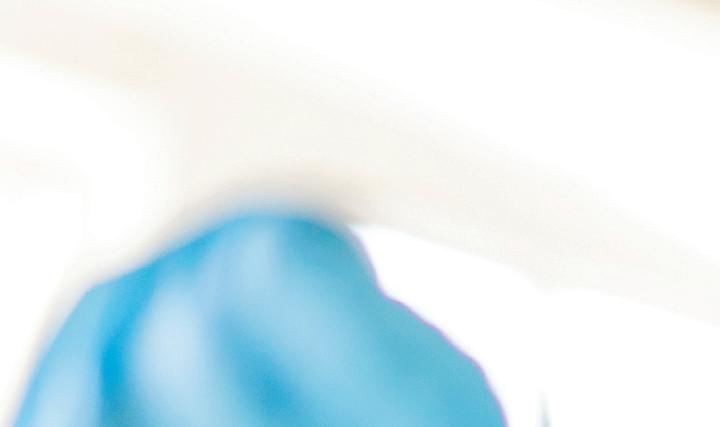


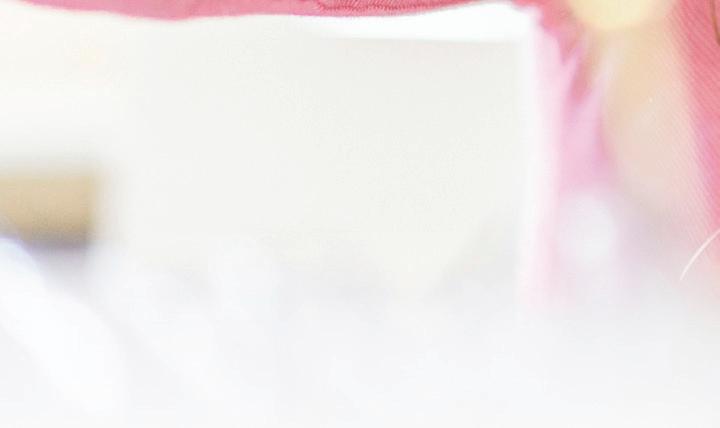
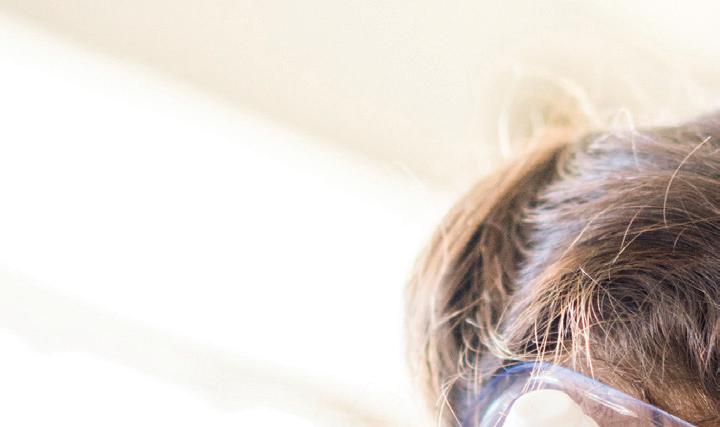
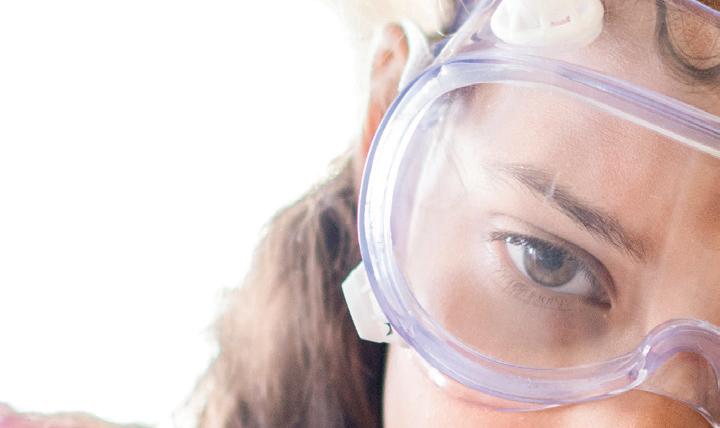


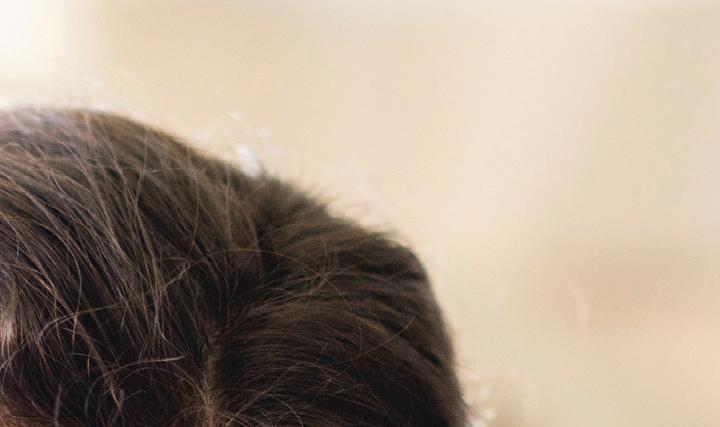

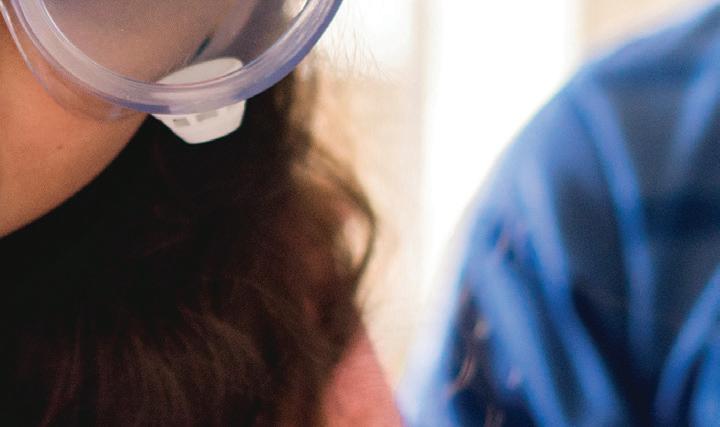
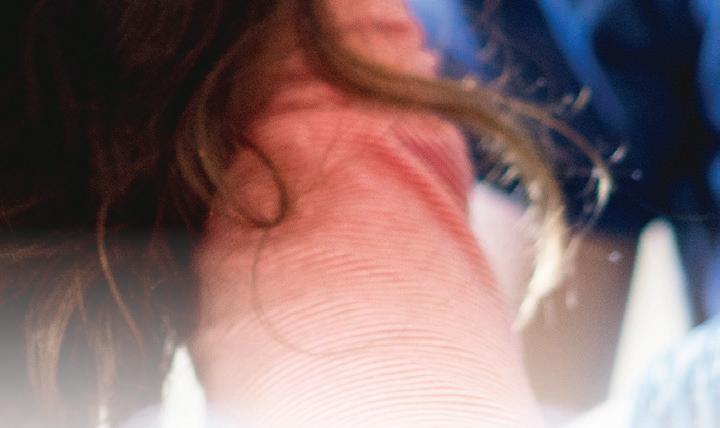

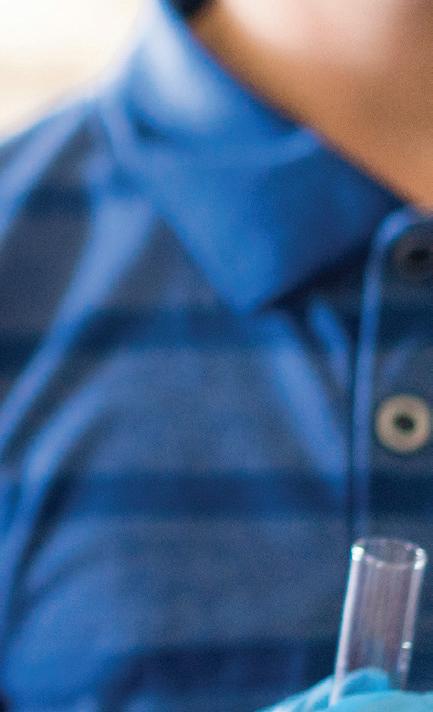
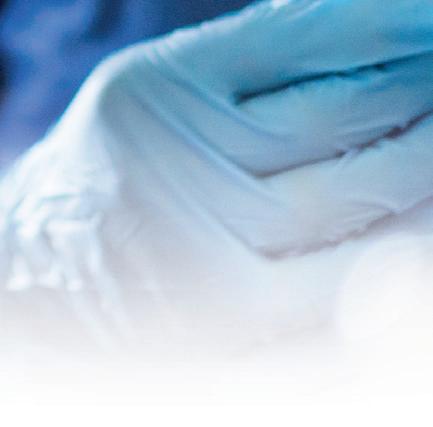
Starting with research skills: Lesson 1
My learning goals are to start to:
• understand what the term ‘research’ means
• understand how to write some basic questions about an issue
• recognise a good research question
• identify some of the features of a good research question
1 4 SAMPLE Original material © Cambridge University Press & Assessment 2023. This material is not final and is subject to further changes prior to publication.
Starting with research skills: Lesson 1
How will I know if I reach my goals?
As you work through this lesson, tick the ‘Achieved’ box to show you have achieved your learning goals. If you haven’t quite achieved your learning goals, tick ‘Not there yet’.
Start to think about how you are going to showcase your learning goals. Add an example once you have achieved each learning goal.
Lesson 1
I think I know what the term ‘research’ means.
I can write some basic questions about an issue.
I can recognise a good research question.
I can identify some features of a good research question.
Prior learning
Not there yetAchievedExample
What do you think the term ‘research’ means?
Research is .......................................................................................
Starter activity
1 Which do you think is the best research question? Put the questions
A–D in order (the best at number 1 and the worst at number 4).
A When do children start school?
B Should we remove all sugar from our diet?
C What is poverty?
D Why are social networking sites bad?
5 SAMPLE Original material © Cambridge University Press & Assessment 2023. This material is not final and is subject to further changes prior to publication.
2 Look at each of the questions in task 1. Answer the following:
a Is the question something that I and others care about?
b Is the question too broad, too narrow or too vague?
c Will I be able to find some information to answer the question?
3 With your partner, have another look at the order you decided on. Make any changes based on the answers to the three questions in task 2. Try to say why you have put them in the order you have.
Do your classmates agree with your order and reasons for this order?


1 .................................................................................................. 2 3 .................................................................................................. 4
1 2 .................................................................................................. 3 4 ..................................................................................................
Reason for your order .....................................................................
6 1 Research SAMPLE Original material © Cambridge University Press & Assessment 2023. This material is not final and is subject to further changes prior to publication.
Starting with research skills: Lesson 1
Main activity
The issue I am focusing on today is …
1 Produce a mind map of as many questions about the issue as you can think of.
2 a Work with a partner to discuss your questions. Using what you have learned so far about a good research question, write down your three best research questions. Remember to check whether each of your questions:
• is something that you and others care about
• is not too broad, too narrow or too vague
• is a question you will be able to find some information about to answer.
1 ..................................................................................................
2
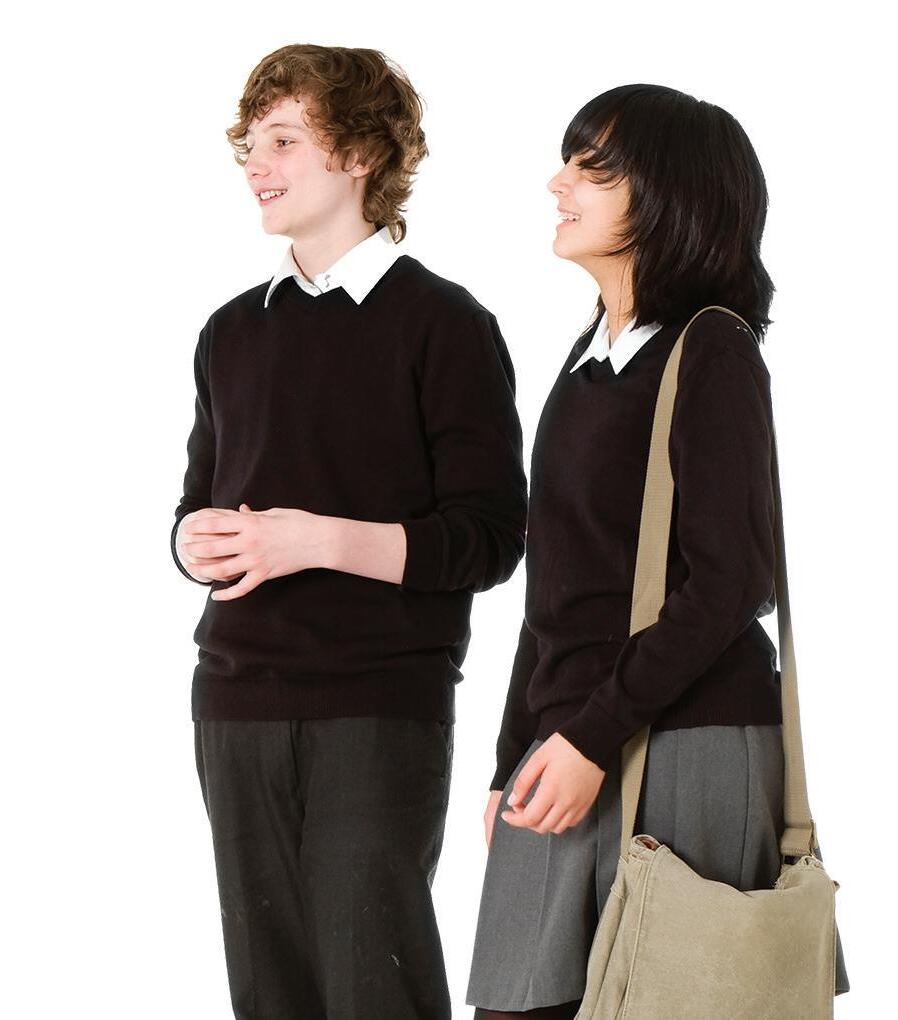
3 ..................................................................................................
Does your partner agree with your choice?
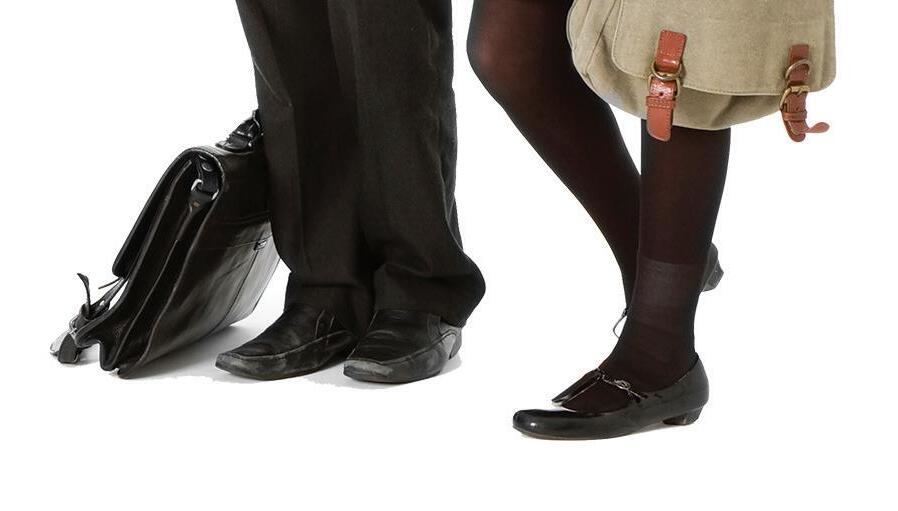
7 SAMPLE Original material © Cambridge University Press & Assessment 2023. This material is not final and is subject to further changes prior to publication.
b Why did you choose these three questions?
Question 1
Question 2 ...................................................................................
Question 3 ...................................................................................
Class discussion
3 As a class, discuss all the best questions. Which do you as a class think is the best question and why?
Best question: ...................................................................................
Reason: .............................................................................................
Independent reflection activity
What do you think has helped your learning in this lesson? Explain why, if you can.
A Working on my own: ...........................................................................................................
B Working with a partner: ......................................................................................................
C Whole class discussion:
D Writing things down in my Learner's Skills Book: ..............................................................
Other skills you have used today
....................................................................................................................................................
Check your learning
If you haven’t already done so, complete the How will I know if I reach my goals? table with ‘Not there yet’ or ‘Achieved’. Don’t forget to add examples.
8 1 Research SAMPLE Original material © Cambridge University Press & Assessment 2023. This material is not final and is subject to further changes prior to publication.

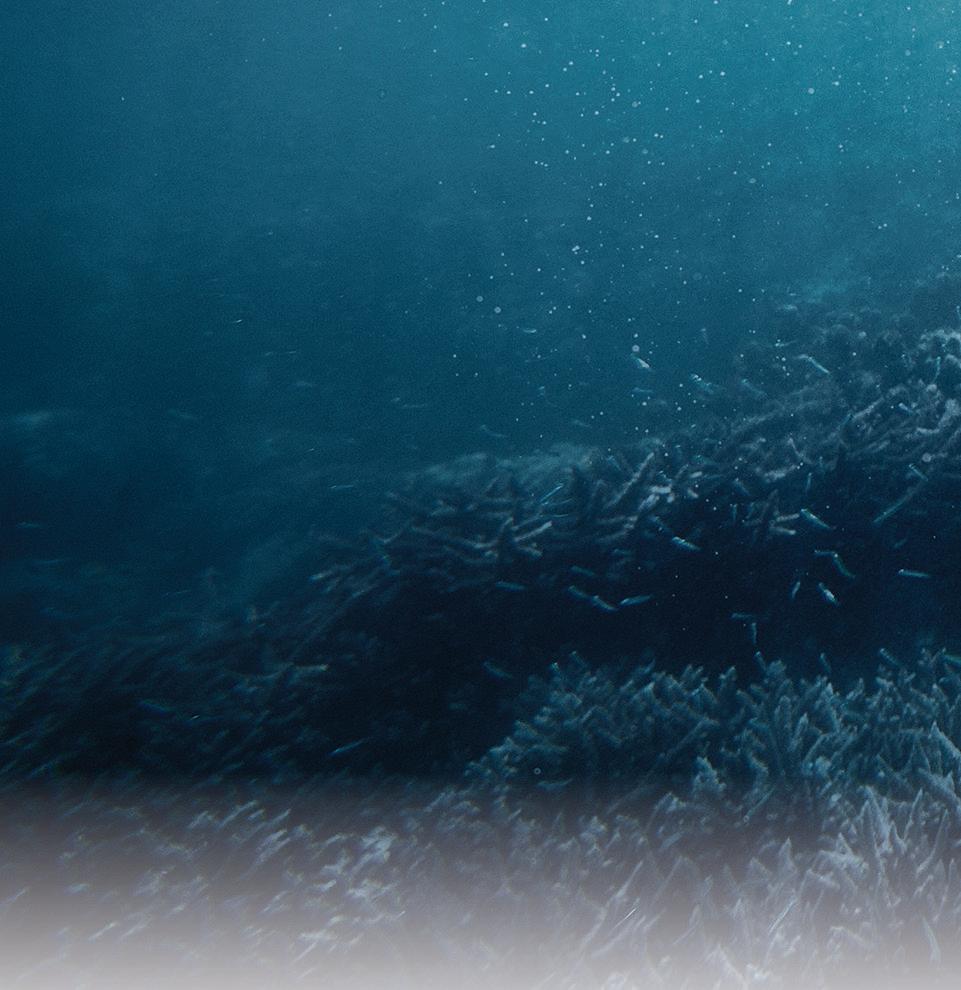

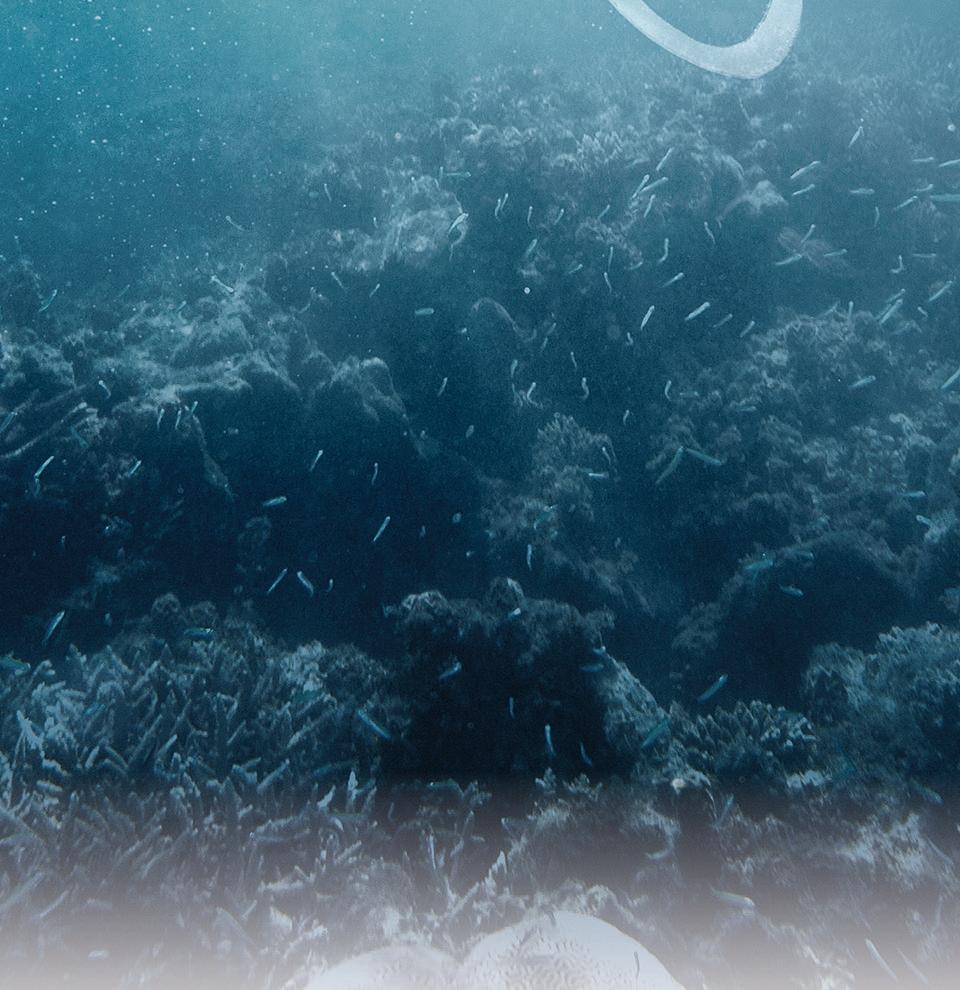

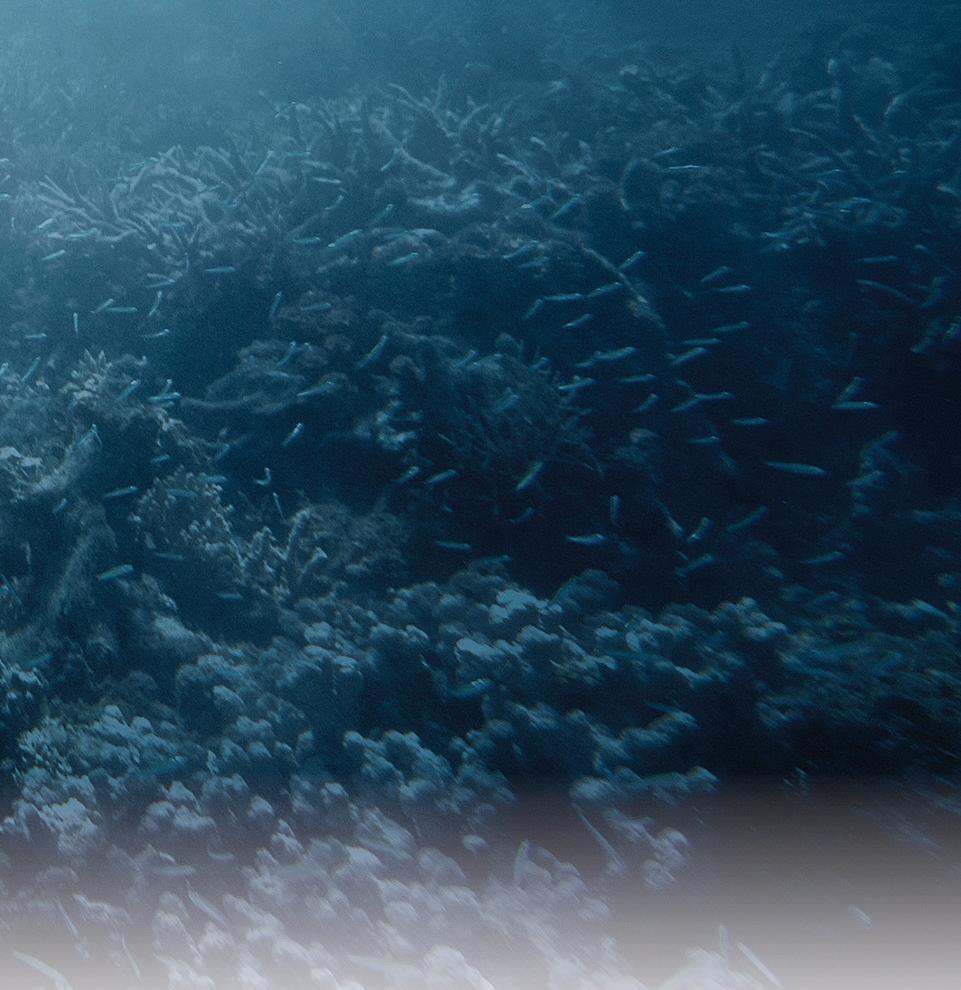
Starting with research skills: Lesson 2
My learning goals are to start to:
• understand what research is
• know how to record the main idea from a text
• know how to take notes to help write a text summary
9 2 SAMPLE Original material © Cambridge University Press & Assessment 2023. This material is not final and is subject to further changes prior to publication.
How will I know if I reach my goals?
As you work through this lesson, tick the ‘Achieved’ box to show you have achieved your learning goals. If you haven’t quite achieved your learning goals, tick ‘Not there yet’.
Start to think about how you are going to showcase your learning goals. Add an example once you have achieved each learning goal.
Lesson 2
I think I understand what research is.
I can identify and write down the main idea from a text.
I can take notes in my own words to help you write a text summary.
Prior learning
Not there yetAchievedExample



Which do you think is the best question?









Reason why it is a good question: .................................................. ........................................................................................................... ........................................................................................................... ...........................................................................................................












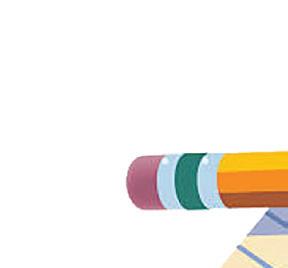











10 1 Research SAMPLE Original material © Cambridge University Press & Assessment 2023. This material is not final and is subject to further changes prior to publication.
Starting with research skills: Lesson 2
Starter activity
1 What different ways are there of finding out information to answer research questions? List as many as you can. Ways
2 After a class discussion about ways of finding out information, look back at your best question from the Prior learning box inthis lesson. What do you think is the best way of finding out information to try to answer this question?


I think the best way of finding out information to answer the question is: ........................................................................................




Main activity



The issue I am focusing on today is …
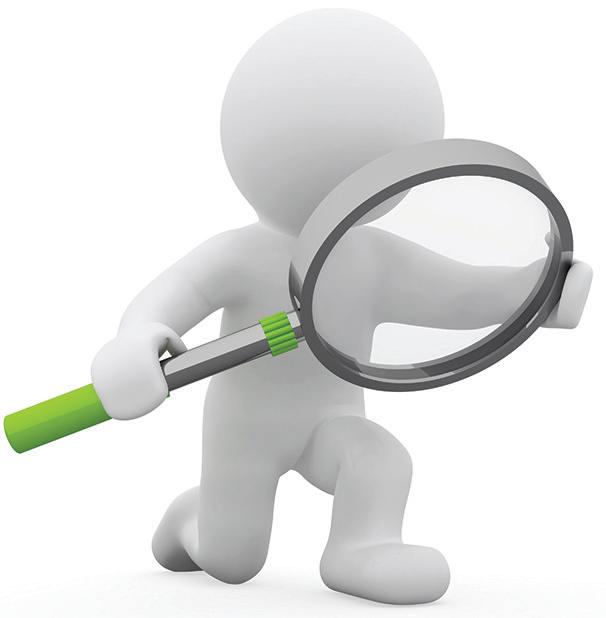

.................................................................................................................




Underline any issue-specific words and also write them in the table. finding 1 a b Tip

Read the text your teacher gives you.



Write the main idea of the text in the following table.




To find the main idea, look for words that are repeated in the text.
of finding out information 1 2 3 4
Class discussion
5
11 SAMPLE Original material © Cambridge University Press & Assessment 2023. This material is not final and is subject to further changes prior to publication.
Main idea
Issue-specific words
Tip Issue-specific words are words that are related to the main idea.
Peer feedback
c Share your information with a partner. Do they have the same ideas as you? Add to your ideas in a different colour.
2 Read each paragraph of the text again. Discuss what the text is about with your partner.
a Write the main idea from each paragraph into the table below.
b Next to each paragraph, write notes about the key information.
Tip Look for key words that tell the reader about the issue. Tip Bullet point notes should be a few words only, not full sentences.
Text title ..................................................................................... Main idea Notes about the key information Paragraph 1: • • • Paragraph 2: • • • Paragraph 3: • • •
12 1 Research SAMPLE Original material © Cambridge University Press & Assessment 2023. This material is not final and is subject to further changes prior to publication.
3
Starting with research skills: Lesson 2
Use the information you have found out and written down. Discuss this information with a partner and then write a short summary of the text. Use these starter sentences to help you write your summary.

Text summary
The text is about
The main idea is ...............................................................................................................
In the first paragraph, we find out
The second paragraph is about .........................................................................................
The last paragraph tells us ...............................................................................................
Peer feedback
Share your text summary with a partner. Ask your partner the following questions:
1 Is the summary too long/short? Yes/No
2 Does the summary contain the key information from the text? Yes/No
3 Is the summary just a copy of the text or has it been written in your own words? Yes/No
4 What might you do to make the summary better? ................................................................................................................................................





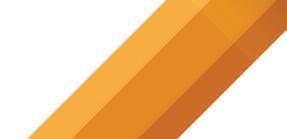

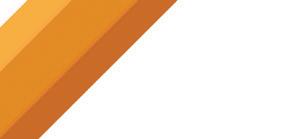
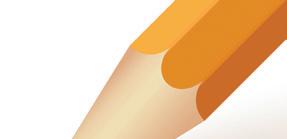

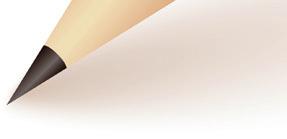

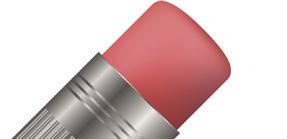
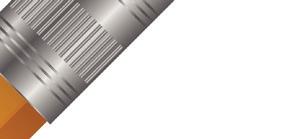







13 SAMPLE Original material © Cambridge University Press & Assessment 2023. This material is not final and is subject to further changes prior to publication.
Independent reflection activity
Which part of this lesson have you found difficult? If you can, explain why.
A Knowing where to get information from: ...........................................................................
....................................................................................................................................................
B Identifying the main idea of a text: ....................................................................................
....................................................................................................................................................
C Writing down issue-specific words:
....................................................................................................................................................
D Using my own words to write a text summary:
....................................................................................................................................................
Other skills you have used today
....................................................................................................................................................
Check your learning
If you haven’t already done so, complete the How will I know if I reach my goals? table with ‘Not there yet’ or ‘Achieved’. Don’t forget to add examples.

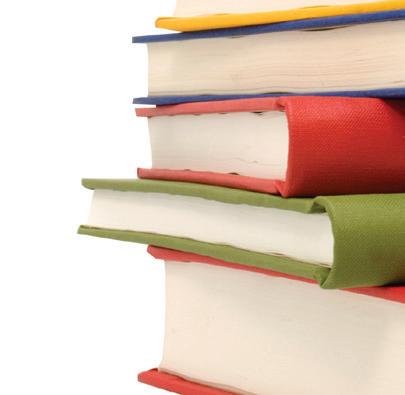

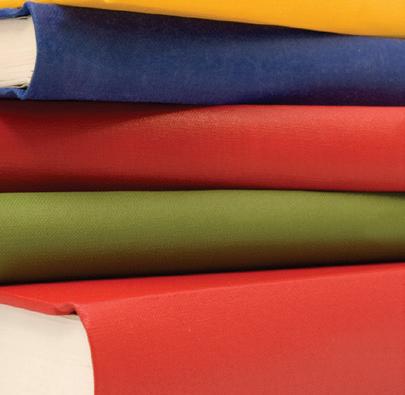

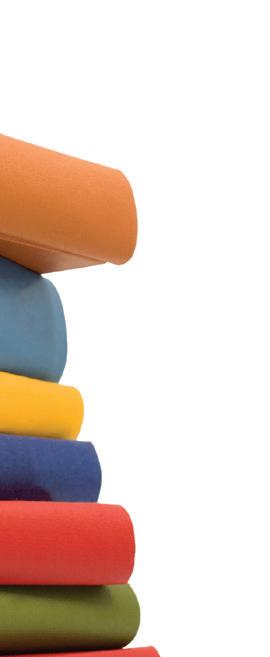
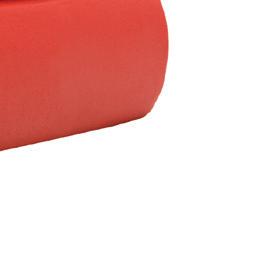
14 1 Research SAMPLE Original material © Cambridge University Press & Assessment 2023. This material is not final and is subject to further changes prior to publication.
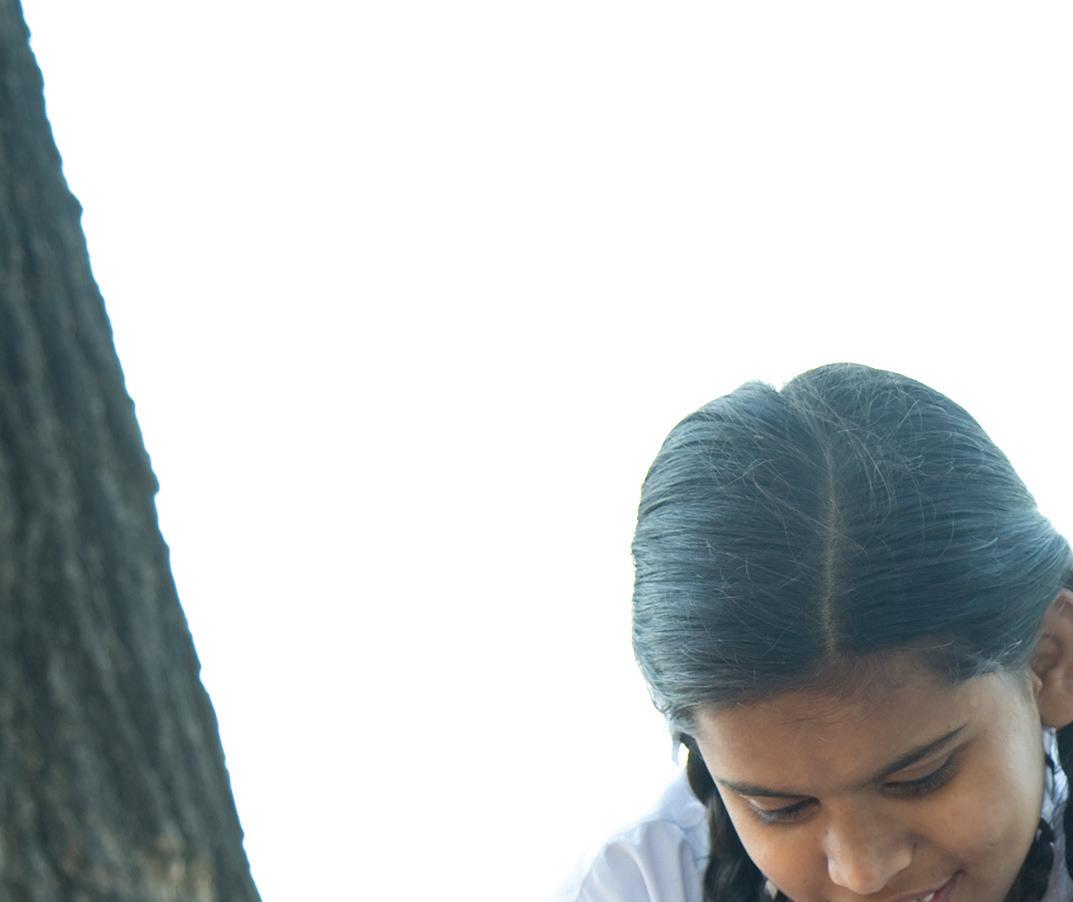
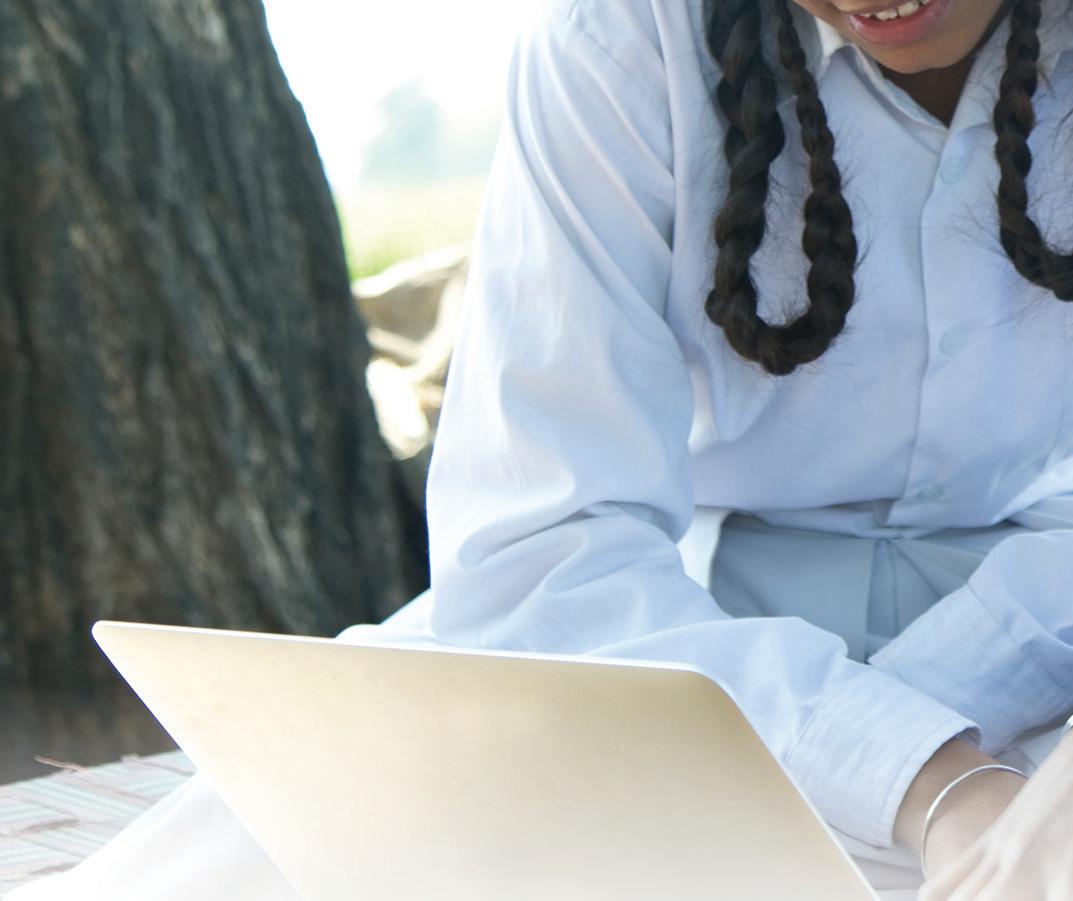
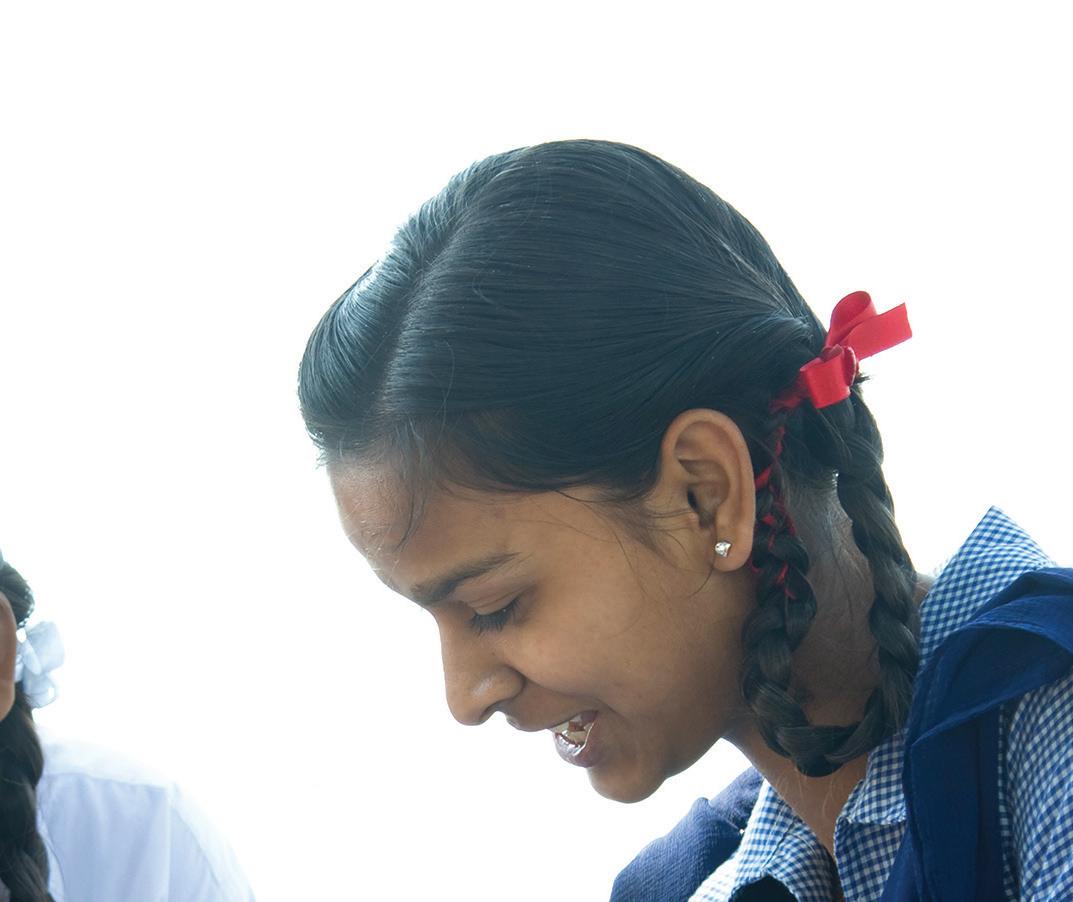

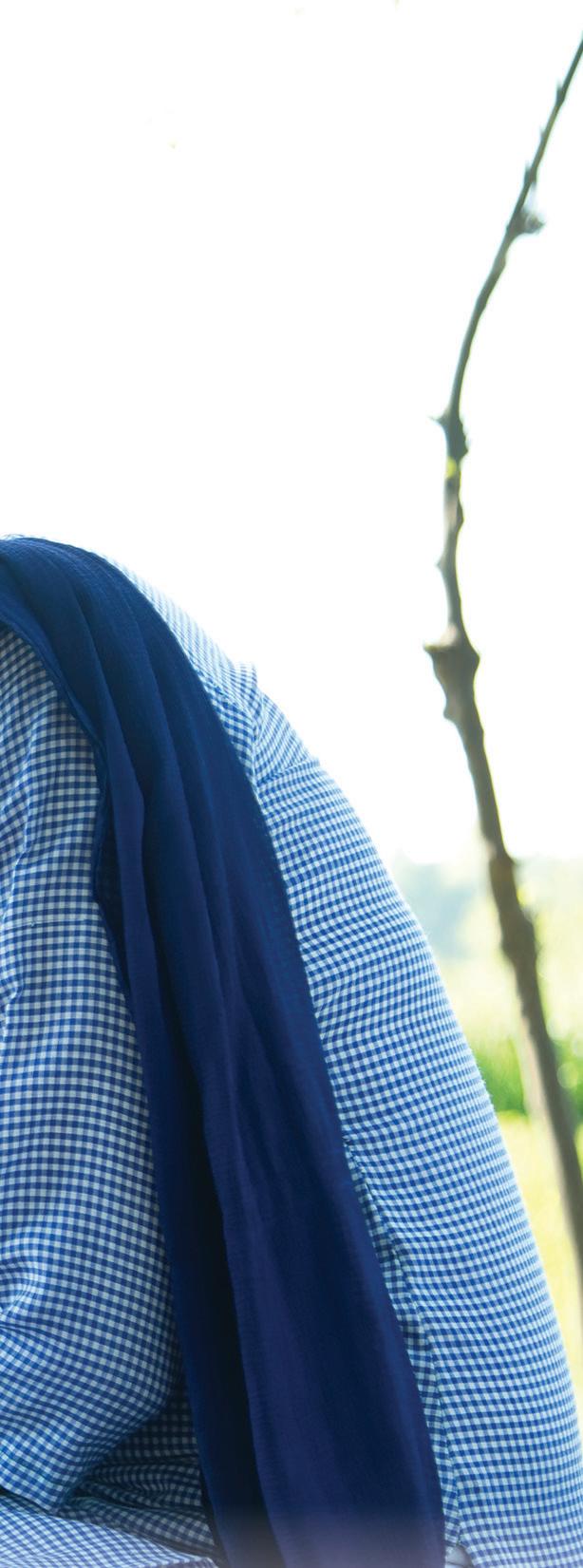

Starting with research skills: Lesson 3
My learning goals are to start to:
• understand what research is
• know the importance of referencing sources of information
• understand how to choose suitable research methods
15 3 SAMPLE Original material © Cambridge University Press & Assessment 2023. This material is not final and is subject to further changes prior to publication.
How will I know if I reach my goals?
As you work through this lesson, tick the ‘Achieved’ box to show you have achieved your learning goals. If you haven’t quite achieved your learning goals, tick ‘Not there yet’.
Start to think about how you are going to showcase your learning goals. Add an example once you have achieved each learning goal.
Lesson 3
I think I understand what research is.
I realise the importance of referencing information sources.
I know some different research methods.
Prior learning
Not there yetAchievedExample
Write down what you found difficult last lesson. Share with the class. Then write down one way that you can overcome this difficulty.
What you found difficult:
How you can overcome this difficulty: .....................................................................................

16 1 Research SAMPLE Original material © Cambridge University Press & Assessment 2023. This material is not final and is subject to further changes prior to publication.
....................................................................................................................................................
Starting with research skills: Lesson 3
Starter activity
1 If you want to find out what people in your local area think about a local issue, which research method(s) would you use?
Research method
Book The internet Questionnaire Newspaper article Interview
Asking people
Yes (✓)No (✗)
2 Why have you chosen this/these research method(s)? .......................................................................................................... .......................................................................................................... ..........................................................................................................
Class discussion
3 After a class discussion about different research methods, which do you think is the best research method for the following purposes?
a To find out whether I am right about something

..................................................................................................
b To find out what the government of a country thinks about something
..................................................................................................
c To find out what my friends and family think about something
17 SAMPLE Original material © Cambridge University Press & Assessment 2023. This material is not final and is subject to further changes prior to publication.
Main activity
The issue I am focusing on today is …
1 Answer the following question:
When you do research, why is it important to have a reference list at the end of a piece of written work?
..........................................................................................................
Discuss the question as a class. Now do you still think the same?
2 When you do research, why is it important to have a reference list at the end of a piece of written work?
..........................................................................................................
3 For each of the website addresses given to you by your teacher, discuss with your partner and then write a sentence in your own words to tell someone else the main idea of the content on the website.
Website 1:
Website 2: ..........................................................................................
Website 3:
Website 4: ..........................................................................................
Website 5: ..........................................................................................
Do your classmates agree with you?
..........................................................................................................
4 Include each of the website addresses given to you by your teacher in a correct reference
Website 1: ..........................................................................................
Website 2: ..........................................................................................
Tip
A reference list is a list of all the sources of information you have researched and used in your own work.
Tip
To reference correctly, you need to include the author, the title of the article, the date it was published, the website address and the date you looked at the article. An example would be: Jacobs (2023). How Students Learn Best. [Online] Available at: https://www. howstudents learnbest.com (Accessed 21/09/2023).
18 1 Research SAMPLE Original material © Cambridge University Press & Assessment 2023. This material is not final and is subject to further changes prior to publication.
Starting with research skills: Lesson 3
Website 3:
Website 4: ..........................................................................................
Website 5:
Peer feedback
Does your partner have the same references as you? Did you miss anything out?
Website 1:

Website 2: ................................................................................................
Website 3: ................................................................................................
Website 4: ................................................................................................
Website 5: ................................................................................................
Independent reflection activity
Which of these skills do you find the most challenging at the moment?
A Knowing what to put in a reference.
B Identifying the main idea from a text.
C Knowing where to look for information for a specific purpose.
....................................................................................................................................................
Other skills you have used today
Check your learning
If you haven’t already done so, complete the How will I know if I reach my goals? table with ‘Not there yet’ or ‘Achieved’. Don’t forget to add examples.
19
Original material © Cambridge University Press & Assessment 2023. This material is not final and is subject to further changes prior to publication.
SAMPLE
Self-assessment 1
How much progress do you feel you have made so far in developing your research skills?
Using the table below, shade in the box that matches your progress most closely. Eventually, you are aiming for green!
Write research questions that link to an issue.
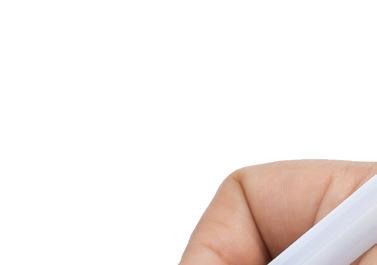

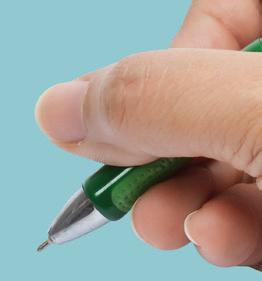
I am starting to … RED AMBER GREEN
I am starting to understand some of the features of a good research question.
Locate a range of sources that will help me to find information that links to my issue and start to reference them.
Choose methods of research that will help me to answer my question.
I am starting to understand why I need to say where I get information from, but am not yet sure how to reference sources of information correctly.
I am starting to understand what research is by knowing at least three research methods I can use.
I know some of the features of a good research question and am starting to recognise good research questions.
I understand why I need to add a reference list to any written work that I do and can reference at least one source of information with help.
I am starting to understand what research is and know where to get information from depending on what I want to know. I am not yet confident enough to tell others where to look for information for a particular issue.




I know some of the features of a good research question and am starting to tell others what a good research question looks like.

I am starting to understand what research is and know where to get information from depending on what I want to know. I am able to tell others where to look for information for a particular issue. of


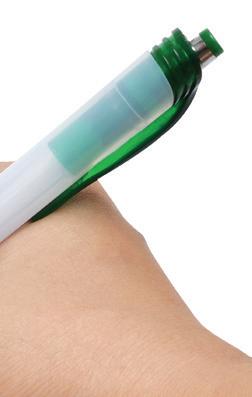
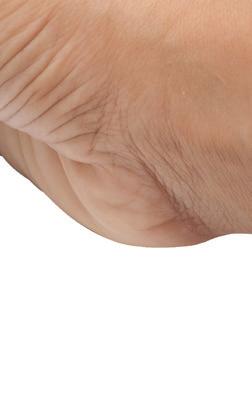
I understand why I need to add a reference list to any written work that I do and can reference at least one source of information.
20 1 Research SAMPLE Original material © Cambridge University Press & Assessment 2023. This material is not final and is subject to further changes prior to publication.
Starting with research skills: Lesson 3
I am starting to … RED AMBER GREEN
Choose information that is relevant to my issue using the most useful method, and start to record this information.
I am starting to understand that there are different research methods for different aims. I am starting to identify the main idea from a text.
I am starting to understand which research methods to use to find out what my family and friends think about something. I am starting to identify the main idea and some issue-specific words from a text.
I am starting to understand which research methods are suitable for finding facts. I am starting to write down key information from a text in my own words.
Issue review
Think about the issue you have been focusing on and complete the following statements. I was surprised to discover that ………............……………………………….………….………
I didn’t know
I now think …………………………………………………………………………….…...………..

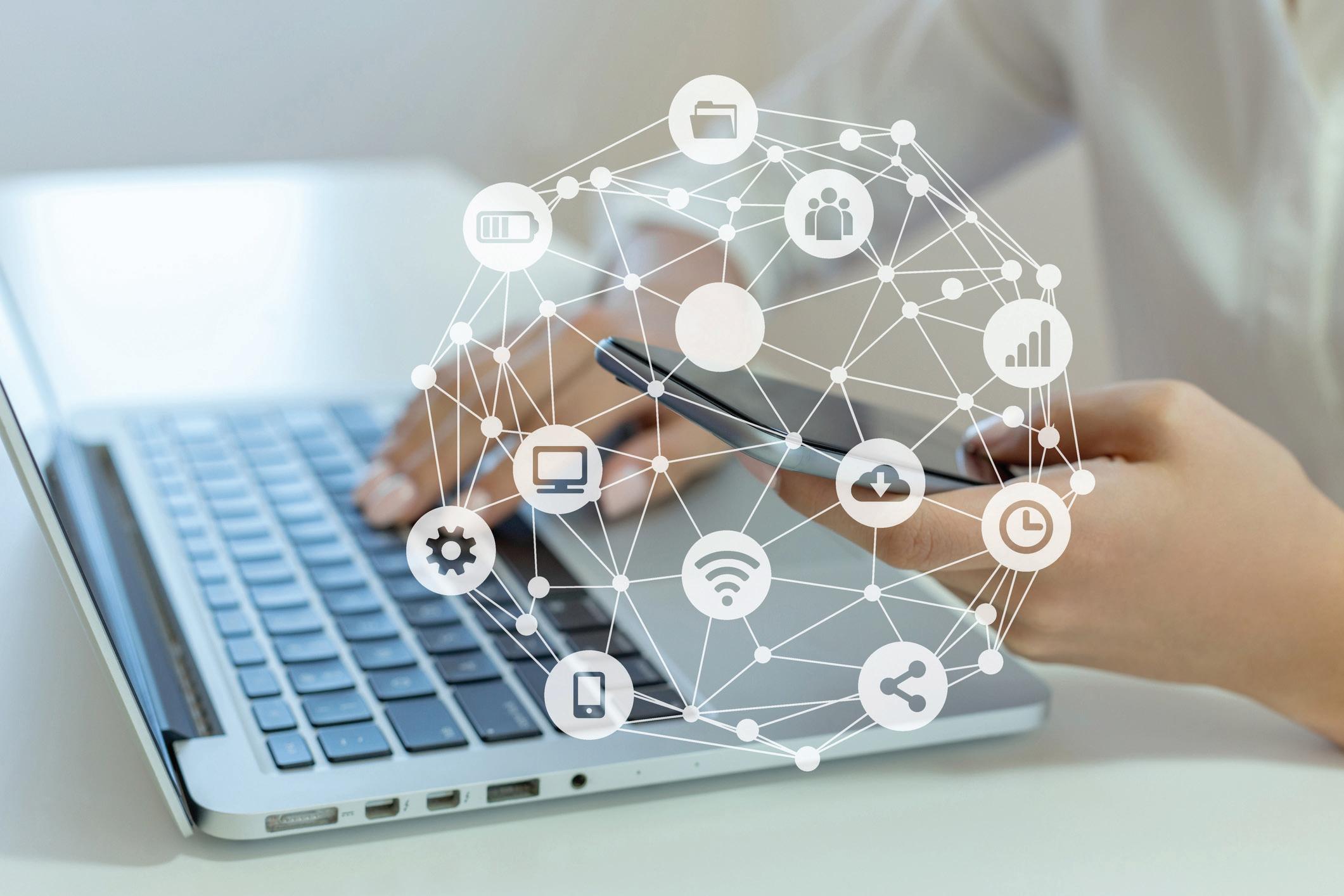
Continued
21
Original material © Cambridge University Press & Assessment 2023. This material is not final and is subject to further changes prior to publication.
SAMPLE
Showcasing your skills
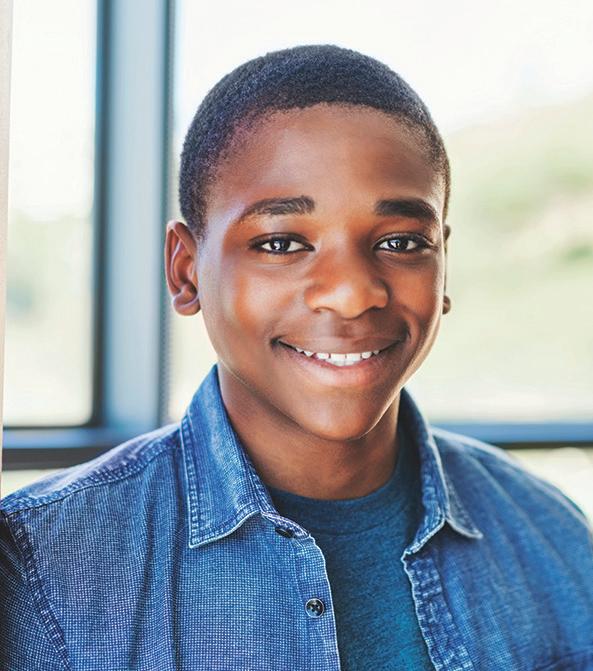

When I was exploring the topic ‘Globalisation’, I really enjoyed writing my own questionnaire. I was trying to find out what my friends and family knew about the different brands of food we all buy.
I liked it when we started researching education and schools as part of the Challenge because we started with our own experiences. It meant I could relate to it and it helped me to think of the questions I wanted to find the answers to.
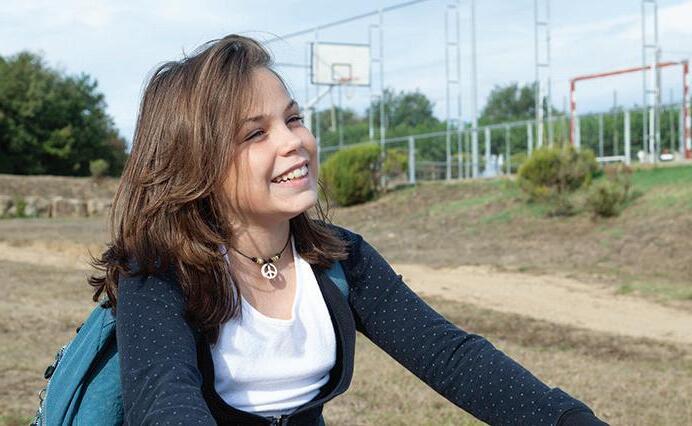

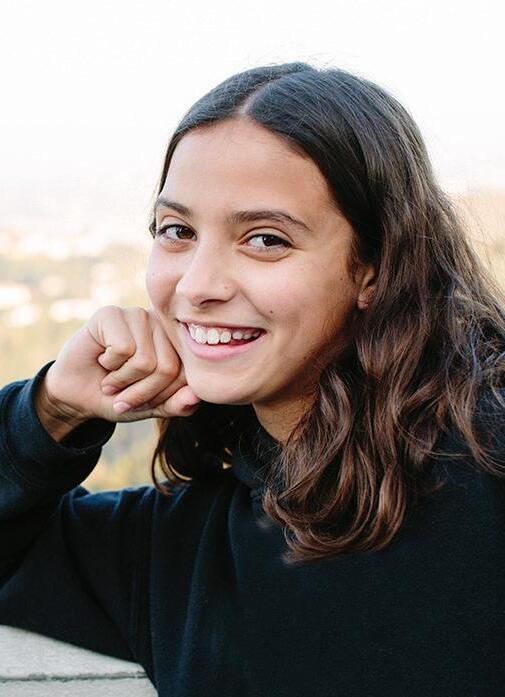
I used to think that ‘research’ was something you had to do in a library with huge books. Now I know that research just means finding out about anything that I want to discover or explore! I liked that I had the freedom to research in any way I wanted to.
I know you will be excited to start your research. Looking on the internet can be interesting and fun. Focus on gathering the information you need. It’s easy to end up with too much information. It’s a good idea to create two lists:
1 a list of the specific questions you want answers to
2 a list of websites that have a good reputation. Ask your teacher to guide you.



52 1 Research SAMPLE Original material © Cambridge University Press & Assessment 2023. This material is not final and is subject to further changes prior to publication.
Cambridge Lower Secondary Global Perspectives
TEACHER’S RESOURCE 7
Keely Laycock
Secondedition Digital Access SAMPLE Original material © Cambridge University Press & Assessment 2023. This material is not final and is subject to further changes prior to publication.
iv Cambridge Lower Secondary Global Perspectives 7: Teacher’s Resource
Introduction vii How to use this series ix How to use this Teacher’s Resource x About the curriculum framework xiii Curriculum mapping xv Approaches to teaching Cambridge Lower Secondary Global Perspectives xxix Alternative approaches to teaching Cambridge Lower Secondary Global Perspectives xxix Teaching Cambridge Lower Secondary Global Perspectives within the wider curriculum xxxi Integrating the theme of sustainability xxxi Assessment guidance xxxii Transferring your skills as a teacher xxxiii Approaches to teaching and learning xxxv Active learning xxxv Assessment for learning xxxvi Improving learning though questioning xxxvii Differentiation xxxix Language awareness xli Metacognition xlii Skills for Life xliii Acknowledgements xlvi Section 1 Research Introduction 1 Research skills overview 1 Let’s start thinking about research! 2 Starting with research skills: Lesson 1 3 Starting with research skills: Lesson 2 5 Starting with research skills: Lesson 3 8 Developing research skills: Lesson 4 11 Developing research skills: Lesson 5 13 Developing research skills: Lesson 6 15 Getting better at research skills: Lesson 7 17 Getting better at research skills: Lesson 8 19 Getting better at research skills: Lesson 9 21 Showcasing your skills: Research 24 SAMPLE Original material © Cambridge University Press & Assessment 2023. This material is not final and is subject to further changes prior to publication.
Contents
v Contents Section 2 Analysis Introduction 25 Analysis skills overview 25 Let’s start thinking about analysis! 27 Starting with analysis skills: Lesson 1 27 Starting with analysis skills: Lesson 2 29 Starting with analysis skills: Lesson 3 31 Developing analysis skills: Lesson 4 33 Developing analysis skills: Lesson 5 35 Developing analysis skills: Lesson 6 37 Getting better at analysis skills: Lesson 7 39 Getting better at analysis skills: Lesson 8 42 Getting better at analysis skills: Lesson 9 44 Showcasing your skills: Analysis 47 Section 3 Evaluation Introduction 48 Evaluation skills overview 48 Let’s start thinking about evaluation! 49 Getting started with evaluation skills: Lesson 1 50 Getting started with evaluation skills: Lesson 2 52 Getting started with evaluation skills: Lesson 3 53 Developing evaluation skills: Lesson 4 56 Developing evaluation skills: Lesson 5 58 Developing evaluation skills: Lesson 6 60 Getting better at evaluation skills: Lesson 7 61 Showcasing your skills: Evaluation 64 Section 4 Reflection Introduction 65 Reflection skills overview 65 Let’s start thinking about reflection! 66 Starting with reflection skills: Lesson 1 67 Starting with reflection skills: Lesson 2 69 Starting with reflection skills: Lesson 3 70 Developing reflection skills: Lesson 4 73 Developing reflection skills: Lesson 5 75 Developing reflection skills: Lesson 6 76 Getting better at reflection skills: Lesson 7 78 Getting better at reflection skills: Lesson 8 80 Getting better at reflection skills: Lesson 9 83 Showcasing your skills: Reflection 85 SAMPLE Original material © Cambridge University Press & Assessment 2023. This material is not final and is subject to further changes prior to publication.
Digital resources
The following items are available on Cambridge GO. For more information on how to access and use your digital resource, please see front cover.
vi
Lower Secondary Global
7: Teacher’s Resource Section 5 Collaboration Introduction 86 Collaboration skills overview 86 Let’s start thinking about collaboration! 88 Starting with collaboration skills: Lesson 1 88 Starting with collaboration skills: Lesson 2 90 Starting with collaboration skills: Lesson 3 92 Developing collaboration skills: Lesson 4 94 Developing collaboration skills: Lesson 5 96 Developing collaboration skills: Lesson 6 98 Getting better at collaboration skills: Lesson 7 101 Showcasing your skills: Collaboration 103 Section 6 Communication Introduction 104 Communication skills overview 104 Let’s start thinking about communication! 106 Starting with communication skills: Lesson 1 106 Starting with communication skills: Lesson 2 108 Starting with communication skills: Lesson 3 110 Developing communication skills: Lesson 4 111 Developing communication skills: Lesson 5 114 Developing communication skills: Lesson 6 116 Getting better at communication skills: Lesson 7 118 Showcasing your skills: Communication 121
Cambridge
Perspectives
Active learning Assessment for learning Developing learners’ language skills Differentiation Improving learning through questioning Language awareness Metacognition Skills for life Letter for parents Downloadable resources, worked examples and activity templates Projects SAMPLE Original material © Cambridge University Press & Assessment 2023. This material is not final and is subject to further changes prior to publication.
Original material © Cambridge University Press & Assessment 2023. This material is not final and is subject to further changes prior to publication.
SAMPLE
Section 1 Research
Introduction
The learning objectives and learning goals for research skills for Stage 7 focus on:
How to use this Teacher’s Resource
Getting better at research skills: Lesson 8
• Constructing research questions
Main activity (approx. 20–25 mins)
• Developing information skills
• Conducting research
Good for: Starting to analyse information gained from primary research and recording this information.
• Recording research findings
Independent reflection activity; Selfassessment; Issue review (approx. 15–20 mins)
Getting better at research skills: Lesson 7
in pairs/small groups when presenting their information so they can provide continual feedback to each other.
This Teacher’s Resource contains both general guidance and teaching notes designed to help you to deliver the content in Cambridge Lower Secondary Global Perspectives Stage 7.
There are teaching notes for each lesson of the Learner’s Skills Book. Each set of teaching notes contains the following features to help you deliver the unit.
Activity: Discussion about ways of recording information gained.
Differentiation: Learners can work in pairs/small groups for support. Give choice of presentation method.
However, you might also find opportunities within these lessons to develop some of the other Cambridge Global Perspectives skills. For example, when recording information, not only will learners be developing research skills, they will also be developing their communication skills.
Ways of working: Individually and in pairs/small groups for support. Whole-class discussion about ways of recording information from primary research.
Good for: Encouraging learners to consider their learning and progression in learning in lessons. Ask them to be as honest as they can. Encourage learners to reflect on other skills as well as research skills (analysis, evaluation, reflection, communication, collaboration) they have used this lesson, for example, evaluation skills as they give feedback on each other’s work.
Research skills overview
Learning objectives
Different opinions/perspectives: Stress that primary research methods are a great way of gaining opinions and viewpoints from different groups of people about an issue and can form evidence as part of a perspective. For example, the information gained from teachers and students about whether school is the best place for learning can provide evidence for the perspective that ‘yes, school is the best place for learning’, which the learner might use as the national perspective, or ‘no schools are not the best place for learning’, which the learner might use for their global perspective.
The ideas given in Teacher’s Resource 7 are suggestions only, and the activities can be used with any of the Cambridge Global Perspectives Challenges or topics for Stages 7 to 9. Downloadables and Worked Examples are provided for many learning activities. They link to the topics ‘Education for all’ and ‘Health and wellbeing’. It is hoped that the ideas in Teacher’s Resource 7 will help you structure your lessons in an active learning way with input from you as the teacher to help guide and support learners to become more effective and independent researchers.
Suggested answers/ideas: Remind learners to consider the purpose and audience for the information they have gathered. Either give learners the same presentation method or allow them to choose their own way of presenting the information gained from their questionnaire. For example, poster, leaflet, presentation (set a maximum number of slides), blog, summary, bar graph, pie chart, table.
about; a question that is not too broad, too narrow or too vague, a question that allows for information to be found/an answer. Good research questions: ‘Is homeschooling better than learning at school?’, ‘Do humans need animals for survival?’
At the start of each section there is a Skills overview, which summarises the learning objectives within each skill and how these are developed across the lessons within that skill. It also contains ideas for which Challenges or topics can be used, and how you may be able to make links with other skills across the curriculum. Key points cover common misconceptions and tips on how to fill learning gaps. The overview also provides language support, highlighting key terminology needed for that section.
Learners also complete the self-assessment to set their own learning targets before they move on. Learners look back at previous self-assessment and think about and shade where they think they are at this time in their learning. ‘With help’ refers to guidance given (pointing a learner in the right direction, although examples should still come from the learner), for example, from you, other learners and previous work done by the learner in the Learner’s Skills Book 7. For the Issue review, learners explore the topic used in this section to develop research skills. These activities can be done in class, at home or in self-study time.
Independent reflection activity (approx. 5–10 mins)
78Rs.02 Identify and begin to reference a range of print and multimedia sources and use them to locate relevant information and answer research questions. To acknowledge/recognise someone else’s ideas; Wiggins (2016). Students Learn Best When You Do This. Teachthought [online] Available at: https://www. teachthought.com/pedagogy/students-learn-best/ (Accessed 2/12/2019).
78Rs.01 Construct relevant research questions.
Suggested examples:
78Rs.02 Identify and begin to reference a range of print and multimedia sources and use them to locate relevant information and answer research questions.
78Rs.03 Select an appropriate method and conduct research to test predictions and begin to answer a research question.
Learner response and feedback: Encourage learners to work
Good for: Encouraging learners to consider their learning from the lesson, what they think they have done well in terms of working on their own, joining in discussions, asking for help/support, helping their partner, and so on. Encourage learners to reflect on other skills as well as research skills (analysis, evaluation, reflection, communication, collaboration) they have used this lesson. This activity can be done in class, at home or in self-study time.
78Rs.03 Select an appropriate method and conduct research to test predictions and begin to answer a research question. Primary research is important to get first-hand accounts of events or to gain opinions/viewpoints from different people. Primary research methods include interviews, surveys, questionnaires and blogs. Secondary research methods include textbooks, internet articles, newspaper and magazine articles, and biographies.
78Rs.04 Select, organise and record relevant information from a range of sources and findings from primary research, using appropriate methods.
Topics Education for all; Change in culture and communities; Health and wellbeing; Conflict and peace; Sport and recreation
78Rs.01 Construct relevant research questions. Features of a good research question: a question that people care
Getting better at research skills: Lesson 8
78Rs.04 Select, organise and record relevant information from a range of sources and findings from primary research, using appropriate methods. Any relevant example. Can use examples from their Learner’s Skills Book 7 from Lesson 5.
LEARNING GOALS
The Learning objectives and Learning goals features take the objectives from the curriculum framework and the goals from the Learner’s Skills Book, to help you communicate to learners what is expected of them.
Lesson 8 focuses on the use of secondary information sources to gain information to help answer a research question.
Getting better at research skills: Lesson 7
CAMBRIDGE STAGE 7 RESEARCH LEARNING OBJECTIVES
Lesson 7 focuses on the use of primary research to gain information and how to organise and record the information gained from primary research. It follows on from work done in Lessons 5 and 6.
78Rs.03 Select an appropriate method and conduct research to test predictions and begin to answer a research question
CAMBRIDGE STAGE 7 RESEARCH LEARNING OBJECTIVES
78Rs.04 Select, organise and record relevant information from a range of sources and findings from primary research, using appropriate methods
78Rs.03 Select an appropriate method and conduct research to test predictions and begin to answer a research question
78Rs.04 Select, organise and record relevant information from a range of sources and findings from primary research, using appropriate methods
To get better at:
• understanding the difference between primary and secondary information sources
LEARNING GOALS
To get better at:
• knowing how to do an internet search to find information
• recording information gained from secondary information sources
• understanding when to use primary research methods
• selecting which information to use from primary research
How will I know if I reach my goals?
• recording information gained from primary research
Good for: Learners to give examples of their learning from the lesson. They can complete the table at any point in the lesson, but they might do it at the end.
How will I know if I reach my goals?
Resources needed
• Learner’s Skills Book 7
Good for: Learners to give examples of their learning from the lesson. They can complete the table at any point in the lesson, but they might do it at the end.
• Downloadable 1.6
x Cambridge Lower Secondary Global Perspectives 7: Teacher’s Resource
1 Section 1 Research
19
17
Original material © Cambridge University Press & Assessment 2023. This material is not final and is subject to further changes prior to publication.
SAMPLE
research question.
Starting with research skills: Lesson 1
Lesson 1 focuses on understanding what the term ‘research’ means and knowing how to identify and write basic questions.
78Rs.03 Select an appropriate method and conduct research to test predictions and begin to answer a research question
78Rs.03 Select an appropriate method and conduct research to test predictions and begin to answer a research question
CAMBRIDGE STAGE 7 RESEARCH LEARNING OBJECTIVES
78Rs.04 Select, organise and record relevant information from a range of sources and findings from primary research, using appropriate methods
Each How will I know if I reach my goals? heading contains advice on how learners can interact with the success criteria laid out in the Learner’s Skills Book.
78Rs.01 Construct relevant research questions
78Rs.04 Select, organise and record relevant information from a range of sources and findings from primary research, using appropriate methods
78Rs.02 Identify and begin to reference a range of print and multimedia sources and use them to locate relevant information and answer research questions
LEARNING GOALS
To start to:
•understand what the term ‘research’ means
Reflecting the activities in Learner’s Skills Book, each lesson consists of advice on how to work through the Prior learning activity, Starter activity, Main activity, Class discussion and Peer feedback, where appropriate. To help you plan, a recommended amount of time to spend on each lesson is given (please note, this is only a recommendation and may need to be altered depending on the structure of your school day). A list of resources you will need has been included with each lesson.
•understand how to write some basic questions about an issue
Lesson 1 focuses on understanding what the term ‘research’ means and knowing how to identify and write basic questions.
•recognise a good research question
The Prior learning notes provide advice on where your learners should be in their learning before beginning the activity.
•identify some of the features of a good research question
CAMBRIDGE STAGE 7 RESEARCH LEARNING OBJECTIVES
LEARNING GOALS
To get better at:
• understanding when to use primary research methods
To start to:
• understanding the difference between primary and secondary information sources
Differentiation for support: Give learners options:
• selecting which information to use from primary research
•understand what the term ‘research’ means
• knowing how to do an internet search to find information
• recording information gained from primary research
Research is … A Gaining new knowledge; B Using a search engine; C Finding out information; D Gaining different opinions on an issue.
•understand how to write some basic questions about an issue
•recognise a good research question
• recording information gained from secondary information sources
•identify some of the features of a good research question
How will I know if I reach my goals?
Suggested answers/ideas: Any reasonable and relevant response. All of the suggestions A–D are correct. The intention is to stimulate learners’ own ideas. Not issue specific.
Good for: Learners to give examples of their learning from the lesson. They can complete the table at any point in the lesson, but they might do it at the end.
How will I know if I reach my goals?
Starter activity (approx. 10 mins)
Good for: Learners to give examples of their learning from the lesson. They can complete the table at any point in the lesson, but they might do it at the end.
How will I know if I reach my goals?
Good for: Learners to give examples of their learning from the lesson. They can complete the table at any point in the lesson, but they might do it at the end.
Cambridge Lower Secondary Global Perspectives 7: Teacher’s Resource
Resources needed
• Learner’s Skills Book 7
Resources needed
•Focused: Is the question too broad, making it hard to answer? Is the question too narrow, making it hard to find enough information?
Starting with research skills: Lesson 1
• Downloadable 1.6
Starting with research skills: Lesson 1
•Learner’s Skills Book 7
Good for: Identifying good questions and some of the features of a good question. estion that is not too broad, too narrow or too vague, a question that allows for information to be found.
estion that is not question that allows Ways of working: discussion on this order. Suggested answers: learners to these challenge. They interesting? Is vague? Can it Suggested best question B as broad, narrow find information narrow; C is too on a false premise
How will I know if I reach my goals?
78Rs.01 Construct relevant research questions
The ideas for the Starter activity are designed to grab your learners’ attention and create interest and engagement. They include advice on what to listen out for, how to diagnose any issues and how to make decisions about what to do next.
Good for: Learners to give examples of their learning from the lesson. They can complete the table at any point in the lesson, but they might do it at the end.
78Rs.02 Identify and begin to reference a range of print and multimedia sources and use them to locate relevant information and answer research questions
Resources needed
LEARNING GOALS
•Learner’s Skills Book 7
To start to:
The Main activity ideas give instructions for successful execution of the activity, with differentiation advice, suggestions for feedback and answers where relevant.
Prior learning (approx. 5 mins)
•understand what the term ‘research’ means
•understand how to write some basic questions about an issue
•recognise a good research question
•identify some of the features of a good research question
Good for: Building on previous knowledge, learning and understanding. This might be from Primary Global Perspectives or from other subject areas as this might be your learners’ first Cambridge Lower Secondary Global Perspectives lesson.
In each lesson there is also a Worked example for the Starter activity or Main activity, to demonstrate how the activity could work with a relevant topic. This serves as an example of what success looks like, but you do not have to use the issue given in the example.
Main activity (approx. 20–25 mins)
Good for: Finding relevant information sources for a specific purpose (research question given by you).
How will I know if I reach my goals?
Good for: Learners to give examples of their learning from the lesson. They can complete the table at any point in the lesson, but they might do it at the end.
Activity: Give learners a research question, for example: ‘Do you think scientists should continue to develop robots?’
Resources needed
1 Learners search for three websites where they might find reliable information to do with the topic/help them answer the question.
•Learner’s Skills Book 7
At the end of each lesson there are ideas on how to use the Independent reflection activity, Self-assessments and Issue review, depending on which lesson you are in and if your learners are completing these in the lesson or as homework. These are scaffolded throughout each section.
Prior learning (approx. 5 mins)
2 Learners complete the checklist table to help them judge whether each information source is reliable or not.
3 Learners decide with new knowledge from their completed table whether or not to use the information sources originally chosen.
Good for: Building on previous knowledge, learning and understanding. This might be from Primary Global Perspectives or from other subject areas as this might be your learners’ first Cambridge Lower Secondary Global Perspectives lesson.
4 Learners should check the question and only include details in the blog that relate to the question. They note the key points in their own words; keep it relatively short (no more than 100 words) and include linking words as necessary (because, due to, this means, etc.)
Differentiation: Learners can work individually and share in pairs once complete or work in pairs and share in fours.
Individually or in pairs for support
•Arguable: Does your research question allow you to form an opinion? Does it allow you to support this opinion with evidence?
Prior learning (approx. 5 mins)
Differentiation for support: Give learners options:
Ways of working: Individual, pairs and whole-class discussion on the order of questions and reasons for this order.
Research is … A Gaining new knowledge; B Using a search engine; C Finding out information; D Gaining different opinions on an issue.
Main activity
Good for: Building on previous knowledge, learning and understanding. This might be from Primary Global Perspectives or from other subject areas as this might be your learners’ first Cambridge Lower Secondary Global Perspectives lesson.
3 Depends on questions themselves arguable, and also lends an arguable focus. For disadvantages group of people,
Differentiation: Learners can work in pairs for support. You could create a handout with all the features of a good research question on it (Is it interesting? Is it too broad, narrow or vague? Can it be answered? Is it clear? Is it focused? Is it arguable?) Handouts can also have explanations and examples on.
Good for: Producing Activity: Learners about an issue research questions.
Suggested answers/ideas: Any reasonable and relevant response. All of the suggestions A–D are correct. The intention is to stimulate learners’ own ideas.
Not issue specific.
Suggested answers: Based on the features, so point learners to these if they are finding this activity a challenge. They should ask themselves: Is the question interesting? Is it too broad? Is it too narrow? Is it too vague? Can it be answered?
Ways of working: Individually and in pairs to share ideas and clarify own thinking. Whole-class discussion about features of a good research question.
Starter activity (approx. 10 mins)
4 One possible parents be school their to school?’
Different opinions/perspectives: Encourage learners to see if their questions can be answered from different perspectives: global, local, national.
Good for: Identifying good questions and some of the features of a good question.
Suggested best research question from the choice is question B as it is something people care about, not too broad, narrow or vague, and learners will be able to find information to answer the question. A is too narrow; C is too broad and D is too vague and based on a false premise (bad for what?).
5 The question Cambridge lends itself too broad
7 Learners can classmates question or
Main activity (approx. 20–25 mins)
Learner response and feedback: Encourage learners to give feedback to each other based on the features of a good research question.
Good for: Producing questions about an issue.
estion that is not too broad, too narrow or too vague, a question that allows for information to be found.
Ways of working: Individual, pairs and whole-class discussion on the order of questions and reasons for this order.
Suggested answers based on the Topic ‘Education for all’: Learners are developing their ability to write good research questions so any reasonable questions to do with the issue. Stress the importance of using the features when judging the quality of research questions (see Worked Example ).
8 A reworded to be home-schooled environment?’
Activity: Learners produce a mind map of questions about an issue (can be any issue) in order to produce research questions.
Starting with evaluation skills: Lesson 3
9 Three sub-question whether children of children children benefit
Independent
Peer feedback about blogs to determine whether the information gained from the sources actually starts to help answer the research question given.
Suggested answers: Based on the features, so point learners to these if they are finding this activity a challenge. They should ask themselves: Is the question interesting? Is it too broad? Is it too narrow? Is it too vague? Can it be answered?
Worked Example for the Main activity
Topic: Education for all Research Question: Should parents be allowed to decide whether to home school their children instead of sending them to school?
(approx. 5–10
Suggested answers: Answers will vary as different learners will use different websites / sources of information. Learners can explore how and why blogs are different in relation to the other information sources used.
Suggested best research question from the choice is question B as it is something people care about, not too broad, narrow or vague, and learners will be able to find information to answer the question. A is too narrow; C is too broad and D is too vague and based on a false premise (bad for what?).
find out more about different ways of getting an education.
2 Questions to do with the topic:
Main activity (approx. 20–25 mins)
Good for: Producing questions about an issue.
Independent reflection activity; Self-assessment; Issue review (approx. 15–20 mins)
a What are the benefits of home-schooling?
Activity: Learners produce a mind map of questions about an issue (can be any issue) in order to produce research questions. 3
Good for: Encouraging learners to consider their learning in lessons. Encourage learners to reflect on other skills as well as evaluation skills (research, analysis, reflection, communication, collaboration) they have used this lesson, for example, research skills as they selected which websites to use.
b What are the disadvantages of home-schooling?
c Why do parents decide to home school their children?
Learners also complete the self-assessment to set their own learning targets before they move on. Learners think about and shade where they think they are at this time in their learning. ‘With help’ refers to guidance given (pointing a learner in the right direction, although examples should still come from the learner), for example, from you, other learners, previous work done by the learner in the Learner’s Skills Book 7. For the
Good for: Encouraging learning from the have learned to sporting events The question is might be a little events’ to ‘The mostly well-focused good question. and national perspective. on other skills evaluation, reflection, they have used class, at home or
xi
this Teacher’s Resource
How to use
19
CAMBRIDGE STAGE 7 RESEARCH LEARNING OBJECTIVES
3
Ways of
and to clarify own thinking and understanding.
working:
12
17 from work done in Lessons 5 and 6. CAMBRIDGE STAGE 7 RESEARCH LEARNING OBJECTIVES
Original material © Cambridge University Press & Assessment 2023. This material is not final and is subject to further changes prior to publication.
SAMPLE
Cambridge Lower Secondary Global Perspectives
Cambridge Lower Secondary Global Perspectives
At the end of each section, there is advice about how to use the Showcasing your skills pages that feature at the end of each Learner’s Skills Book section. These passages in the Teacher’s Resource also indicate which of the three projects could be used to help learners demonstrate and practise the skills they have developed in each section.
Showcasing your skills: Research
Good for: Showing learners how others felt at the end of the research tasks. These young people have practised and developed their research skills and learned a lot about how conducting research and asking key questions can make them even better at Cambridge Lower Secondary Global Perspectives.
Activity: This is an opportunity for your learners to reflect on elements of their work in this section that they are particularly pleased with. Read through and discuss the reflections with your class. Then try one of these reflection tasks with your learners:
Supporting resources including worksheets, worked examples and a set of three projects are available on Cambridge GO. For more information on how to access and use your digital resource, please see front cover.
xii
7:
Teacher’s Resource
24
7: Teacher’s Resource
SAMPLE Original material © Cambridge University Press & Assessment 2023. This material is not final and is subject to further changes prior to publication.
Section 1 Research
Introduction
The learning objectives and learning goals for research skills for Stage 7 focus on:
• Constructing research questions
• Developing information skills
• Conducting research
• Recording research findings
However, you might also find opportunities within these lessons to develop some of the other Cambridge Global Perspectives skills. For example, when recording information, not only will learners be developing research skills, they will also be developing their communication skills.
Research skills overview
Learning objectives
The ideas given in Teacher’s Resource 7 are suggestions only, and the activities can be used with any of the Cambridge Global Perspectives Challenges or topics for Stages 7 to 9. Downloadables and Worked Examples are provided for many learning activities. They link to the topics ‘Education for all’ and ‘Health and wellbeing’. It is hoped that the ideas in Teacher’s Resource 7 will help you structure your lessons in an active learning way with input from you as the teacher to help guide and support learners to become more effective and independent researchers.
78Rs.01 Construct relevant research questions.
78Rs.02 Identify and begin to reference a range of print and multimedia sources and use them to locate relevant information and answer research questions.
78Rs.03 Select an appropriate method and conduct research to test predictions and begin to answer a research question.
78Rs.04 Select, organise and record relevant information from a range of sources and findings from primary research, using appropriate methods.
Topics Education for all; Change in culture and communities; Health and wellbeing; Conflict and peace; Sport and recreation
Key points
• Learners think research is about using a search engine, but often don’t know how to use a search engine effectively
• Learners copy and paste from information sources rather than making notes and writing in own their words
• Research does not just have to be from the internet; learners can use books, newspaper and magazine articles, community newsletters, podcasts, videos, interviews with family, friends, teachers and peers, and questionnaires/surveys
• Biased and leading questions are questions such as: ‘Do you agree that Cambridge Global Perspectives Stage 7 is interesting?’
• Questions that only allow for descriptive responses often start with ‘How..?’ or ‘What…?’ For example, ‘What animals exist in my country?’, ‘How do people learn?’
1
Original material © Cambridge University Press & Assessment 2023. This material is not final and is subject to further changes prior to publication.
SAMPLE
Language support
Cross-skills links
• Pre-teach key vocabulary: advantages; disadvantages; main idea; subjectspecific words; identify; explain; evaluate; home-schooling; evidence; evaluation; judgement; primary research; secondary sources of information; bias; leading question; features; characteristics; data; argument; convincing; reference. Also include any topic-specific vocabulary for the topics – Education for all; Change in culture and communities; Health and wellbeing.
• Handout of question words with some examples from the topics/subjects: when, what, which, who, where, why and how.
Analysis
78A.01 Identify ideas and evidence from different perspectives within different sources on a given issue.
Evaluation
78E.01 Evaluate sources, considering the author and purpose, recognising that some sources may be more credible than others.
78E.02 Discuss the effectiveness of an argument, making explicit reference to its structure and use of evidence.
Reflection
78Rf.04 Identify skills learned or improved during an activity and relate to personal strengths and areas for improvement.
Collaboration
78Cl.02 The team assign roles and divide tasks fairly, considering the skills of team members and time available, and work together to achieve a shared outcome.
Communication
78Cm.01 Present information and arguments clearly with some reasoning, referencing sources where appropriate.
78Cm.02 Listen to ideas and information and offer relevant and well-judged contributions that demonstrate understanding of the issue.
Let’s start thinking about research!
Good for: Enthusing your learners about the skill they are going to work on. The questions give learners ideas about the issues they might explore as they develop their research skills. The first idea suggested is the Challenge ‘Is school the best place to learn?’ and the topic ‘Education for all’. The second idea is based on the topics ‘Education for all’ and ‘Health and wellbeing’. Although they are not linked to a specific Challenge, the downloadables provide everything your learners need to complete the activities in Section 1 and become proficient at research.
Activity: Begin with a quick question and answer session. Ask learners:
• What does ‘research’ mean?
• What kind of questions could we ask?
• Where might we get our information?
• What issue shall we explore?
Ask learners to each write down one question they have about this section – for example, on a sticky note. Collate and display their questions so that they are easy to refer to as you work through this section. In that way, learners can see their questions being answered.
2 Cambridge Lower Secondary Global Perspectives 7: Teacher’s Resource
Original material © Cambridge University Press & Assessment 2023. This material is not final and is subject to further changes prior to publication.
SAMPLE
Starting with research skills: Lesson 1
Starting with research skills: Lesson 1
Lesson 1 focuses on understanding what the term ‘research’ means and knowing how to identify and write basic questions.
CAMBRIDGE STAGE 7 RESEARCH LEARNING OBJECTIVES
78Rs.01 Construct relevant research questions
LEARNING GOALS
To start to:
• understand what the term ‘research’ means
• understand how to write some basic questions about an issue
• recognise a good research question
• identify some of the features of a good research question
How will I know if I reach my goals?
Good for: Learners to give examples of their learning from the lesson. They can complete the table at any point in the lesson, but they might do it at the end.
Resources needed
• Learner’s Skills Book 7
Prior learning (approx. 5 mins)
Good for: Building on previous knowledge, learning and understanding. This might be from Cambridge Primary Global Perspectives or from other subject areas as this might be your learners’ first Cambridge Lower Secondary Global Perspectives lesson.
Activity: Find out what learners already know about research: What does the term ‘research’ mean to you?
Differentiation for support: Give learners options: Research is … A Gaining new knowledge; B Using a search engine; C Finding out information; D Gaining different opinions on an issue.
Suggested answers/ideas: Any reasonable and relevant response. All of the suggestions A–D are correct. The intention is to stimulate learners’ own ideas. Not issue specific.
Starter activity (approx. 10 mins)
Good for: Identifying good questions and some of the features of a good question.
Activity: Putting questions into order from best to worst based on some specific features. Explaining what a good research question looks like in a basic way: a question that people care about; a question that is not too broad, too narrow or too vague, a question that allows for information to be found.
Ways of working: Individual, pairs and whole-class discussion on the order of questions and reasons for this order.
Suggested answers: Based on the features, so point learners to these if they are finding this activity a challenge. They should ask themselves: Is the question interesting? Is it too broad? Is it too narrow? Is it too vague? Can it be answered?
Suggested best research question from the choice is question B as it is something people care about, not too broad, narrow or vague, and learners will be able to find information to answer the question. A is too narrow; C is too broad and D is too vague and based on a false premise (bad for what?).
Main activity (approx. 20–25 mins)
Good for: Producing questions about an issue. Activity: Learners produce a mind map of questions about an issue (can be any issue) in order to produce research questions.
Differentiation: Discuss question words already known as starting point: when, what, which, who, where, why and how. Write a list of question word starters on the board.
Ways of working: Individually and in pairs, to share ideas and clarify own thinking.
3
SAMPLE Original material © Cambridge University Press & Assessment 2023. This material is not final and is subject to further changes prior to publication.
Whole class discussion based on criteria for a good question (a question that people care about; that is not too broad, too narrow or too vague; that allows for information to be found to answer it). List the best questions from individuals on the board. Encourage learners to identify which question they think is the best question and to give reasons (based on features) why they think this.
Different opinions/perspectives: Also, encourage learners to look at their questions from different perspectives. For example, question 9 in the Worked Example will get different responses depending on which perspective it is answered from.
Learner response and feedback: Any suggested questions about the issue should be accepted for the mind map activity. Then encourage learners to focus on the features of a good question to produce their three best questions.
Worked Example for the Main activity
Topic: Education for all
Suggested questions based on the topic ‘Education for all’:
1 What is learning?
2 When do we learn?
3 Where can people learn?
4 Where do we learn most?
5 Who helps us to learn?
6 What helps us to learn?
7 What are the benefits of going to school to learn?
8 What are the disadvantages of going to school to learn?
9 Why is learning important (for me, for my community, for my country, for the world)?
10 How do I/we learn best?
Suggested best question: Are there more advantages to going to school to learn than disadvantages? It is an interesting question: not too broad, narrow or vague, and can be answered.
Independent reflection activity (approx. 5–10 mins)
Good for: Encouraging learners to consider how they are learning best in lessons. Ask them to be as honest as they can. There is no correct response, and they can choose more than one option. Encourage learners to reflect on other skills (analysis, evaluation, reflection, communication, collaboration) they have used this lesson, as well as research skills. For example, they could say: ‘I solved problems with my partner’ (the Starter activity), ‘I worked in a group sharing ideas for a mind map’, ‘I thought about and wrote down what helped me learn’, and so on. This activity can be done in class, at home or in self-study time.
4 Cambridge Lower Secondary Global Perspectives 7: Teacher’s Resource
Original material © Cambridge University Press & Assessment 2023. This material is not final and is subject to further changes prior to publication.
SAMPLE
Lesson 2 focuses on further understanding of the term ‘research’ and being able to find and record information in the Learner’s own words.
CAMBRIDGE STAGE 7 RESEARCH LEARNING OBJECTIVES
78Rs.02 Identify and begin to reference a range of print and multimedia sources and use them to locate relevant information and answer research questions
78Rs.04 Select, organise and record relevant information from a range of sources and findings from primary research, using appropriate methods
LEARNING GOALS
To start to:
• understand what research is
• know how to record the main idea from a text
• know how to take notes to help write a text summary
How will I know if I reach my goals?
Good for: Learners to give examples of their learning from the lesson. They can complete the table at any point in the lesson, but they might do it at the end.
Resources needed
• Learner’s Skills Book 7
• Downloadable 1.1
Prior learning (approx. 5 mins)
Starting with research skills: Lesson 2
Activity: Ask learners to remind you what they did last lesson by looking back in their Learner’s Skills Book 7. Encourage learners to look at what they thought the best question was in the last lesson and to share with their partner the reasons why they chose this question.
Differentiation for challenge: Give learners a research question and ask, ‘Is this a good research question? Why/Why not?’
Example question from topic ‘Change in culture and communities’: Do humans need animals to survive?
Suggested answers: Remind learners of the features of a good research question from Lesson 1: Is it interesting? Is it too broad? Is it too narrow? Is it too vague? Can it be answered?
Does not need to be issue specific.
Starter activity (approx. 5 mins)
Good for: Identifying where learners might find information.
Activity: Listing where they might find information to answer their research questions.
Ways of working: Individually or whole-class discussion to produce a list on the board and for learners to consider and write down the best way of finding information for the question chosen for the Prior learning activity.
Suggested answers/ideas: Based on the question ‘Do humans need animals to survive?’: internet websites, specifically organisations such as One Green Planet: https://www.onegreenplanet.org; newspaper articles such as The Guardian and The Huffington Post, interviews with family and friends, and so on.
Main activity (approx. 25–30 mins)
Good for: Identifying the main idea and subject-specific vocabulary in a text; recording the key information from a text to help write a short text summary.
Starting with research skills: Lesson 2 SAMPLE
Good for: Building on previous knowledge, learning and understanding. This might be from Cambridge Primary Global Perspectives, from other subject areas, and from their last Cambridge Global Perspectives Stage 7 lesson.
Activity: Write a sentence on the board twice, such as ‘Learning new things can help us try new experiences which might be the best ones we ever have.’ In the first of the two sentences cross out all the words apart from ‘can’, ‘us’, ‘which’, ‘might’, ‘have’.
5
Original material © Cambridge University Press & Assessment 2023. This material is not final and is subject to further changes prior to publication.
Ask learners:
• Do these words provide information about what the sentence is about?
• Can you guess what the sentence is about, using only these words?
You can make links to English here by asking learners what these types of words are (connector words that don’t tell us what the sentence is about and can be used in many sentences, but provide no information about the content of the sentence)
Now cross out all the words from the second version of the sentence leaving ‘learning’, ‘new’, ‘things’, ‘help’, ‘try’, new’, ‘experiences’. Ask learners the same questions as before. This time, you will get a different response from learners. These words are the ‘informational’ words that give the main information about the content of the sentence.
Tell learners that when they take notes from informative texts, they should only note down the content (subjectspecific) words and not the connectors.
1 Give learners a text so that they can identify the main idea and the subject-specific vocabulary. The text should be one from the issue started in Lesson 1; for the topic ‘Education for all’ see Downloadable 1.1 and Worked Example.
2 Read through the first paragraph together as a class. Discuss and model note-taking strategies. For example, highlight the informational words only, not the connector words; learners note the key facts and details as single words or short phrases in their own words to show understanding of the information.
3 Learners create a text summary using the sentence starter prompts.
Peer feedback: Learners answer the questions in the Learner’s Skills Book 7 to assess understanding of what a summary involves.
Differentiation: Text lengths can vary. Three paragraphs are suggested, but they can be shorter or longer according to learners. You might read the text together as a class, perhaps displaying it on the whiteboard. You can discuss and model reading-comprehension strategies: For example, look at the title, subheadings, illustrations and repeated words for clues about the main idea of the text, find the words that are related to the main idea, and so on.
If learners find producing the summary a challenge, ask them to write a couple of sentences instead of the full summary. They could choose which sentence starters
they want to complete, or you can tell them which sentence starters you want them to complete.
Ways of working: Individually, in pairs and whole class to share ideas and clarify their own thinking. Wholeclass modelling of working with the text to identify the main idea and subject-specific vocabulary.
Different opinions/perspectives: Encourage learners to see if there are any different perspectives in the text. For example, for Downloadable 1.1 and Worked Example, the perspective is very much that going to school is a good idea. This text is written from a personal perspective.
Learner response and feedback: The text summary should be in the Learner’s own words and should include words/phrases from the tables in tasks 1 and 2. Encourage learners to look back at these two tables to write their text summary.
Encourage peer feedback for the text summary. Summaries should not be too long or short (50–100 words), include the key information and use the Learner’s own words. Learners should identify one way of making their summary better; e.g. avoid using words/phrases from the text.
Suggested answers: These will vary according to the text.
Worked Example for the Main activity
Topic: Education for all
See Downloadable 1.1:
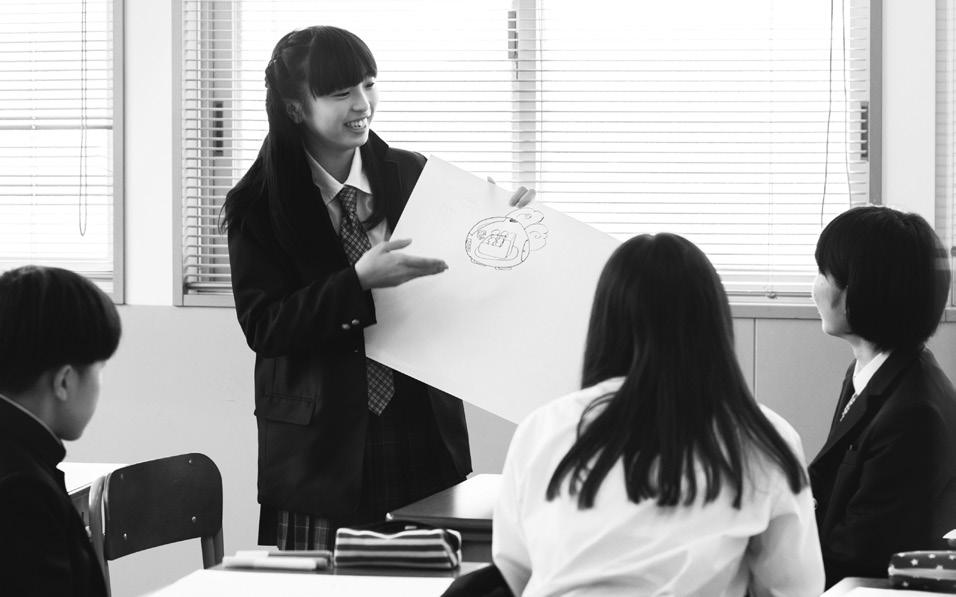
Learning can happen anywhere, but there are many benefits of learning at school.
Here are just three of them:
1 The first benefit is that you have a lot of teachers
6 Cambridge Lower Secondary Global Perspectives 7: Teacher’s Resource
THE BENEFITS
LEARNING
OF
AT SCHOOL
Original material © Cambridge University Press & Assessment 2023. This material is not final and is subject to further changes prior to publication.
SAMPLE
in one place so can learn many different subjects, such as Maths, Languages and Cambridge Global Perspectives. Teachers love the subject they teach and spend a long time learning it themselves. They are trained well to teach their subject to different age groups, and they know about the talents of the learners in their class.
2 Another advantage of learning at school is that you are with other people who are the same age as you are. Your classmates might have the same interests which you can do together or they might introduce you to other experiences such as sporting activities like tennis, gymnastics or football. So, as well as learning school subjects, you can also learn how to do other interesting things.
3 Sometimes you have questions about what you are learning and if you go to school there will always be someone there who can answer your questions. You might also be scared of asking a teacher so you can ask a friend in your class to ask instead until you feel more confident.
Suggested answers:
1 a Main idea of text: there are advantages of going to school to learn.
b Subject-specific words: teachers; subjects; trained; talents; classmates; interests; experiences, and so on.
2 The ideas for this response appear in the suggested summary.
3 Suggested summary:
The text is about three reasons why learning is better at school.
The main idea is that it is a good idea to go to school to learn.
In the first paragraph, we find out that we can study many different subjects at school and that teachers are well trained.
The second paragraph is about being with others who might have the same interests as you or who can introduce you to new activities. The last paragraph tells us that we can ask our classmates if we’re afraid of asking the teacher a question and can learn this way too.
Independent reflection activity (approx. 5–10 mins)
Good for: Encouraging learners to consider what they found challenging during the lesson. Ask them to be as honest as they can. There is no correct response, and they can choose more than one option. Encourage explanation but not all learners will be able to do this. Encourage learners to reflect on other skills as well as research skills (analysis, evaluation, reflection, communication, collaboration) they have used this lesson. This activity can be done in class, at home or in self-study time.
7
with research skills: Lesson 2
Starting
Original material © Cambridge University Press & Assessment 2023. This material is not final and is subject to further changes prior to publication.
SAMPLE
Lesson 3 focuses on further understanding of what research is, understanding how to select appropriate research methods and referencing sources of information.
CAMBRIDGE STAGE 7 RESEARCH LEARNING OBJECTIVES
78Rs.02 Identify and begin to reference a range of print and multimedia sources and use them to locate relevant information and answer research questions
78Rs.03 Select an appropriate method and conduct research to test predictions and begin to answer a research question
LEARNING GOALS
To start to:
• understand what research is
• know the importance of referencing sources of information
• understand how to choose suitable research methods
How will I know if I reach my goals?
Good for: Learners to give examples of their learning from the lesson. They can complete the table at any point in the lesson, but they might do it at the end.
Resources needed
• Learner’s Skills Book 7
• Downloadable 1.2
Prior learning (approx. 5 mins)
Good for: Building on previous knowledge, learning and understanding. This might be from Cambridge Primary Global Perspectives, from other subject areas, or from previous Cambridge Global Perspectives Stage 7 lessons.
Activity: Find out what learners found difficult during Lesson 2. Ask learners to write down one area of
difficulty and share with the class. Refer learners to the tips in the Learner’s Skills Book 7 (Lesson 2) for how they can overcome these difficulties.
Differentiation: Ask specific learners to give the class tips on overcoming any difficulties from the last lesson.
Suggested answers/ideas: Any reasonable and relevant response. Ideas might include:
• to practise with each text at reading through once and then coming up with own headline for the text (main idea)
• to build a list of topic/subject-specific vocabulary for each activity (in a notebook)
• to practise reading short texts/paragraphs and writing summaries of no more than 20 words using only own words.
The intention is to stimulate learners’ own ideas.
Not issue specific.
Starter activity (approx. 10–15 mins)
Good for: Identifying suitable research methods for specific aims/purposes.
Activity: Group brainstorm and feedback to the whole class. Some learners might find it a challenge to say why they chose the methods they did so this can be used as differentiation for those that can answer at this point. You could come back to this at the end of the lesson.
Suggested answers:
1 Responses will vary
2 I need to find out what local people think and the best way of doing this is to ask some local people.
Discussion:
Starting with research skills: Lesson 3 SAMPLE
3 a To find out whether I am right about something – internet, books, ask teacher/friend/parent
b To find out what the government of a country thinks about something – internet, government websites, newspaper article
c To find out what my friends and family think about something – questionnaire, interview. Not issue specific.
8 Cambridge Lower Secondary Global Perspectives 7: Teacher’s Resource
Original material © Cambridge University Press & Assessment 2023. This material is not final and is subject to further changes prior to publication.
Main activity (approx. 20–25 mins)
Good for: Seeing the importance of giving credit to other people’s work and not just copying it as your own.
Activity: You might start by having a discussion and asking learners the following questions (Some suggested answers have been put in brackets):
• Do you think anything bad might happen to you if you copy someone else’s words or ideas and don’t give them any credit? (Bad or no grade, suspended from school, lose people’s faith/trust in you as they think you are a cheat, etc.)
• How do you think you might feel if someone stole your words and ideas and didn’t give you any credit? What do you think should happen to them if they do? Should they get a bad or no grade?
• Why do you think it might be unfair to use someone else’s work without giving them any credit?
• How would you feel if you posted something on social media and your friends shared it as if it were their own post and didn’t give you any credit?
• How does it help you if you say where you got your information from? (Shows I know where to look and what I am talking about and that I have understood the information I have read from the source.)
• How does it help someone who reads your work if you say where you got your information from? (They can learn more from the sources of information you have used, they can see that you have used good sources so can trust what you are saying, etc.)
• How do you think you might give credit to other people’s words and ideas in your own work? (By citing and by including a reference list at the end of a piece of work.)
• What information do you think you need to give credit for? (Someone else’s idea or opinion, any facts, statistics, graphs and drawings, quotations of someone else’s spoken or written words, paraphrases of someone else’s spoken or written words.)
After class discussion, learners can do the activities in their Learner’s Skills Book 7, sharing with a partner why a reference list is important.
Differentiation: For task 3, revisit the work on the main idea, referring learners back to Lesson 2.
See Downloadable 1.2. Give a pair of learners the same website address or addresses; they might work on their own and then share. Or give the whole class a set of website addresses, and for each one they note the main idea and then share. You might make up some website addresses with the main idea in them, e.g. https//whatcanwedo/plastic/use/local.by
You can also use newspaper articles if you have no access to the internet. For each article, learners record the main idea. For task 4, learners can write a reference for each newspaper article. For this, they need to record the author, the title of the article, the date it was published and the title of the news agency that published the article.
Ways of working: Individually and in pairs to share ideas and clarify own thinking. Whole-class discussion based on the importance of referencing and how to reference sources of information.
Different opinions/perspectives: Also, encourage learners to look at the website addresses and think about which perspective they think the ideas on the website come from. For example, for the Worked Example below: 1 Home-schooling/parents/global; 2 Australian government/national; 3 The Gurugram school/India/ national; 4 China/national; 5 Technology/global
Learner response and feedback: Stress that, at the moment, it doesn’t matter that learners don’t do referencing correctly as this is a skill that can be developed over the next levels (Developing … and Getting better at … ) and Stages 8 and 9, but they should try to reference other people’s work and keep a list of sources of information they use. Peer feedback so learners can clarify their own understanding and gain ideas from their peers – an important part of learning about referencing.
Suggested answers based on the topic ‘Education for all’: There are many different systems for citing and referencing sources of information. One in common use internationally is Harvard. To cite in Harvard in the text, the author and date go in brackets after the information within the written work (Wiggins, 2016). The full reference including author, date and title of the article, web address and date accessed go in an author alphabetical reference list at the end of the piece of work. Footnotes are not used in the Harvard system. So the full reference for the citation given is: Wiggins (2016). Students Learn Best When You Do This. Teachthought [online] Available at: https://www.teachthought.com/pedagogy/ students-learn-best (Accessed 2/12/2019).
9 Starting with research skills: Lesson 3
SAMPLE Original material © Cambridge University Press & Assessment 2023. This material is not final and is subject to further changes prior to publication.
Worked Example for the Main activity
Topic: Education for all
See Downloadable 1.2.
The weblinks below are examples of how to reference web addresses correctly – they may not necessarily be active links, as these often change. You can either use these, or find your own and follow the same formatting.
1 (main idea – benefits of being educated/learning at home rather than at school)
Full reference: Barbieri (2016). 10 good reasons to home school your child. The Guardian. [online] Available at: https://www.theguardian.com/lifeandstyle/2016/ sep/10/10-good-reasons-to-home-school-your-child (Accessed 21/05/2023).
2 (main idea – how children and teenagers learn)
Full reference: Raising Children Network (2016). Learning: Primary and secondary school years. Raising Children Network. [online] Available at: https://raisingchildren.net.au/articles/learning_ primary_secondary_school.html (Accessed 21/05/2023).
3 (main idea – No space and crumbling building forces learning in an area with a leaking roof)
Full reference: HT correspondent (2018). The Gurugram school that has one class for 96 students. Hindustani Times. [online] Available at: https://www.hindustantimes.com/gurugram/thegurugram-school-that-has-one-class-for-96-students/ story-BFPAt9HvBCjvXX9gvAwpSK.html (Accessed 21/05/2023).
4 (main idea – the problems of education in China)
Full reference: Thai (2017). Education in China: The Good, The Bad & The Big Opportunities. Dragon social. [online] Available at: https://www.dragonsocial. net/blog/education-in-china (Accessed 21/05/2023).
5 (main idea – the use of technology for learning)
Full reference: Kelly (2013). Technology can empower children in developing countries – if it’s done right. The Guardian. [online] Available at: https://www.theguardian.com/sustainable-business/ technology-empower-children-developing-countries (Accessed 21/05/2023).
Independent reflection activity; Self-assessment; Issue review (approx. 15 –20 mins)
Good for: Encouraging learners to consider their learning in lessons. Ask them to be as honest as they can. There is no correct response, and they can choose more than one option. Encourage learners to reflect on other skills as well as research skills (analysis, evaluation, reflection, communication, collaboration) they have used this lesson, for example, collaboration skills as they discussed with a partner.
Learners also complete the self-assessment to set their own learning targets before they move on. Learners think about and shade where they think they are at this time in their learning. ‘With help’ refers to guidance given (pointing a learner in the right direction, although examples should still come from the learner), for example, from you, other learners or previous work done by the learner in the Learner’s Skills Book 7. For the Issue review, learners explore the issue used in this section to develop research skills. These activities can be done in class, at home or in self-study time.
Suggested examples:
78Rs.01 Construct relevant research questions. Features of a good research question: a question that people care about; a question that is not too broad, too narrow or too vague; a question that allows for information to be found/an answer. Good research questions: ‘Is homeschooling better than learning at school?’ ‘Do humans need animals for survival?’
78Rs.02 Identify and begin to reference a range of print and multimedia sources and use them to locate relevant information and answer research questions. To acknowledge/recognise someone else’s ideas; referencing, for example, Wiggins (2016). Students Learn Best When You Do This. Teachthought [online] Available at: https://www.teachthought.com/pedagogy/ students-learn-best/ (Accessed 2/06/2023).
78Rs.03 Select an appropriate method and conduct research to test predictions and begin to answer a research question. Research methods include: Interview, questionnaire/survey, internet search, Look in newspaper, magazine, book. To know what family/ friends think, use interview, questionnaire, survey.
10 Cambridge Lower Secondary Global Perspectives 7: Teacher’s Resource
Original material © Cambridge University Press & Assessment 2023. This material is not final and is subject to further changes prior to publication.
SAMPLE
Showcasing your skills: Research
Good for: Showing learners how others felt at the end of the research tasks. These young people have practised and developed their research skills and learned a lot about how conducting research and asking key questions can make them even better at Cambridge Lower Secondary Global Perspectives.
Activity: This is an opportunity for your learners to reflect on elements of their work in this section that they are particularly pleased with. Read through and discuss the reflections with your class. Then try one of these reflection tasks with your learners:
• ‘Two stars and a wish’ means ‘Two things I am pleased with and one thing I want to improve on’. Ask your learners to write their own ‘two stars and a wish’ on a sticky note and stick it on the board.
• Ask each learner to draw two speech bubbles. In one they write, ‘What went well’ and fill in their thoughts, and in the other they write ‘Even better if’, which they complete. Create a class display of speech bubbles on the classroom wall.
Projects: If learners have had ample opportunities to practise the other skills required, they could also showcase their research skills by attempting any of the three projects available at cambridge.org/go, all three of which have learning goals based on research learning objectives.
24 Cambridge Lower Secondary Global Perspectives 7: Teacher’s Resource
SAMPLE Original material © Cambridge University Press & Assessment 2023. This material is not final and is subject to further changes prior to publication.



























































































































































